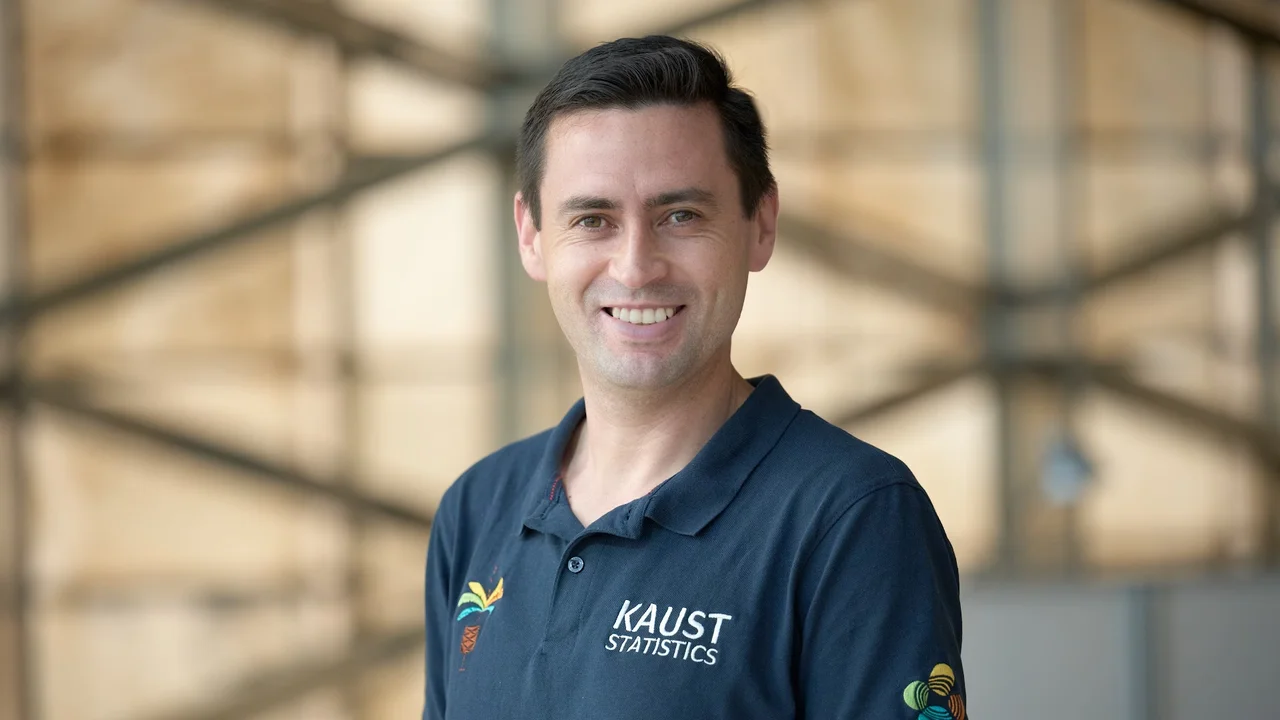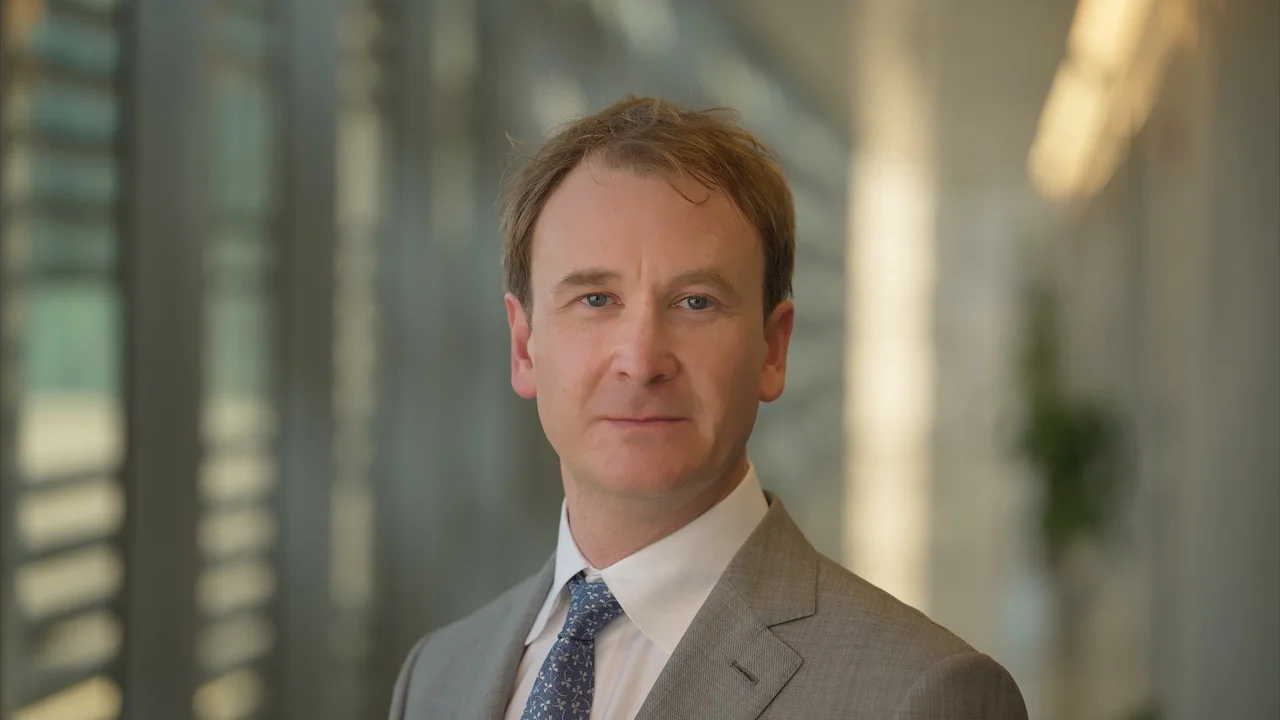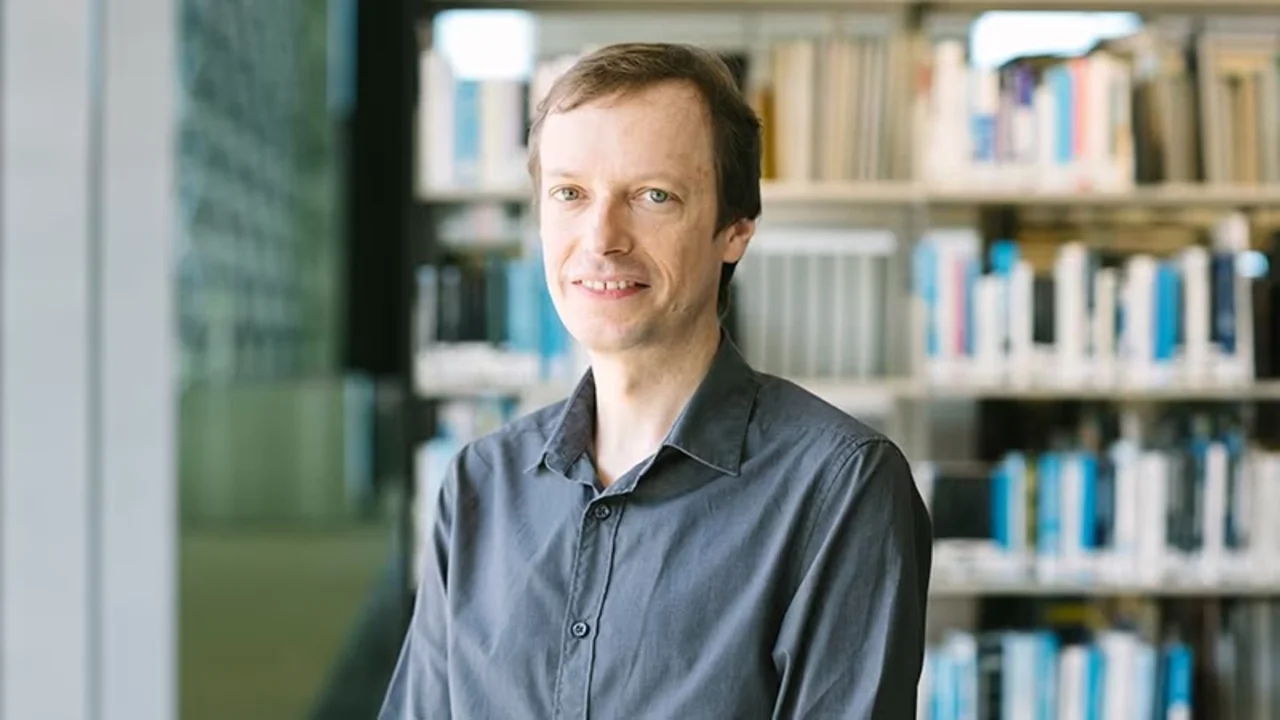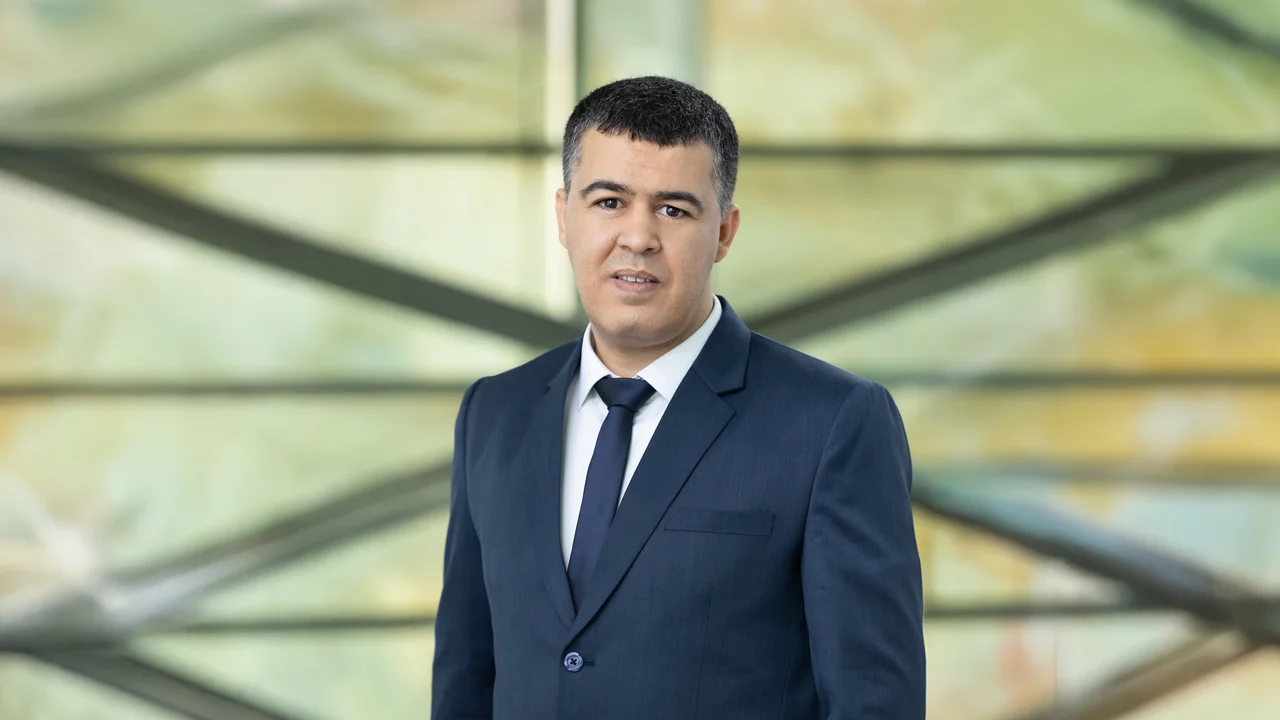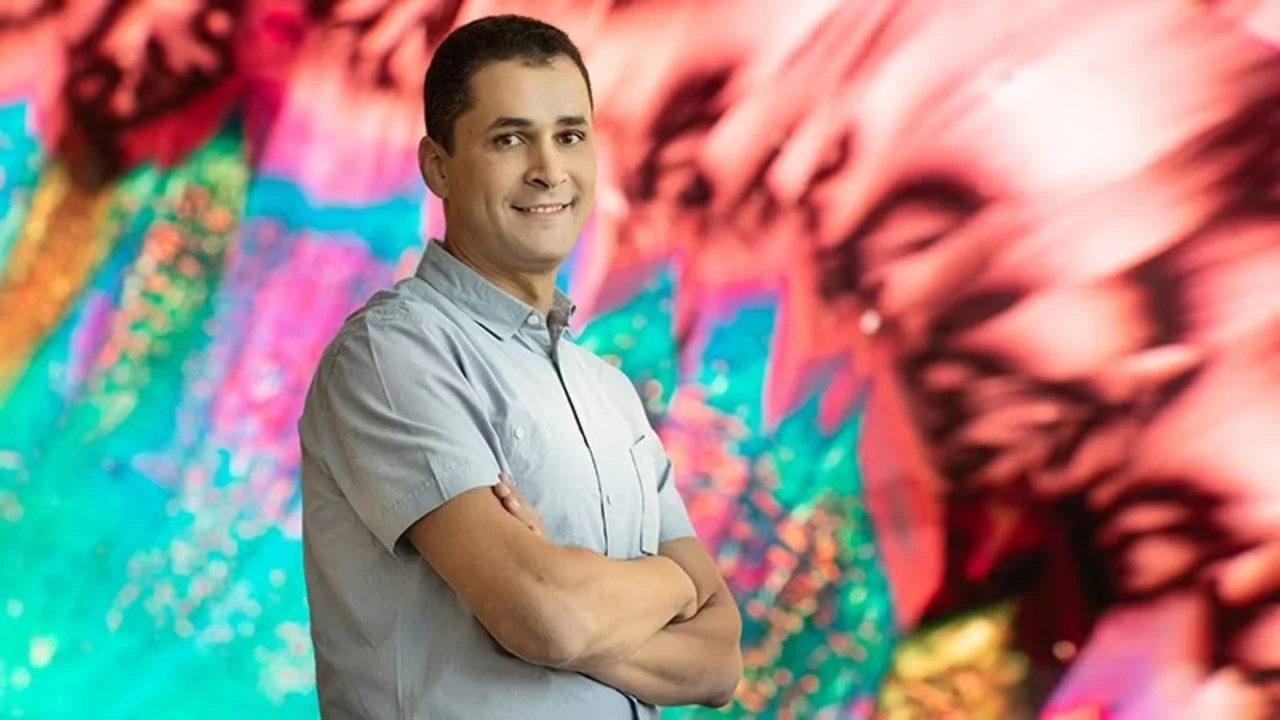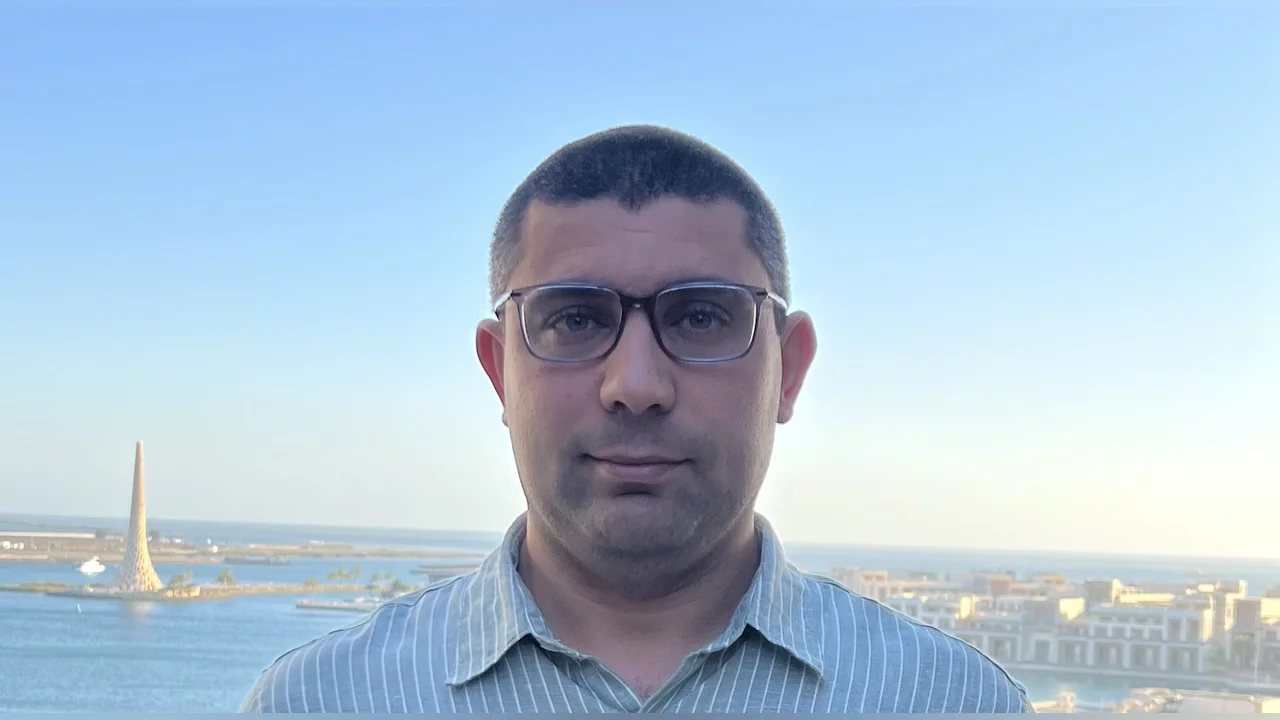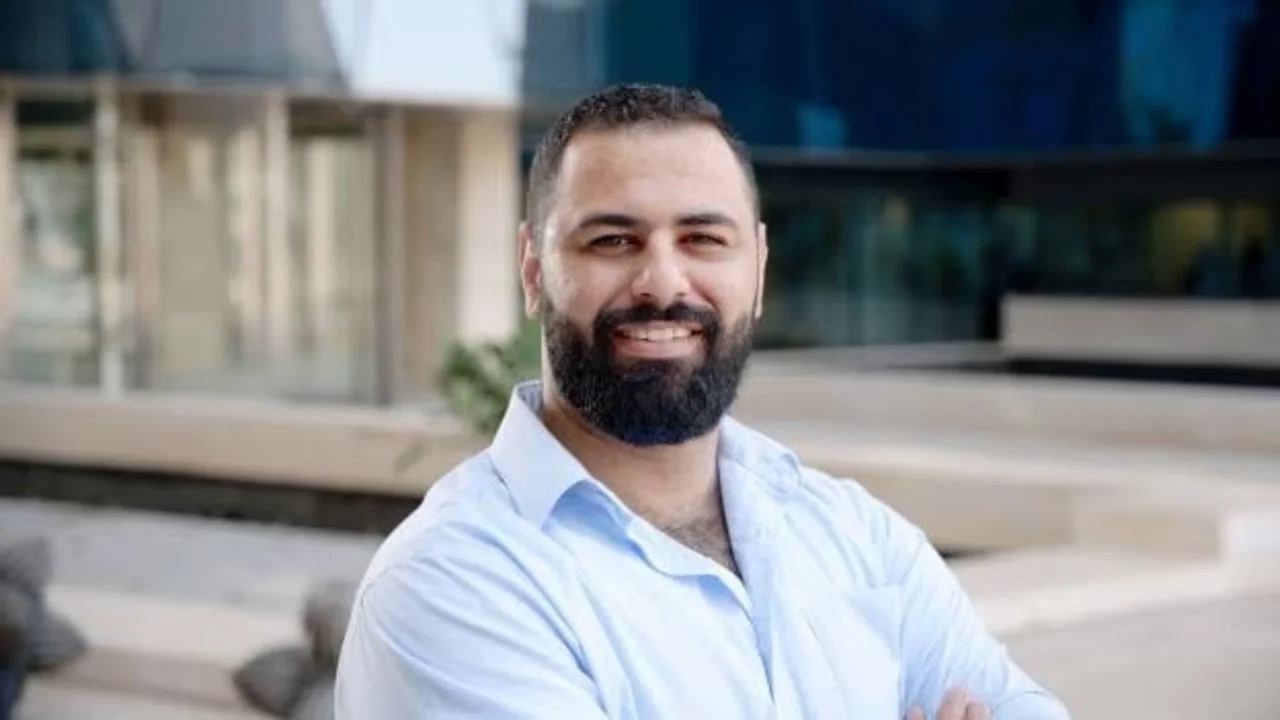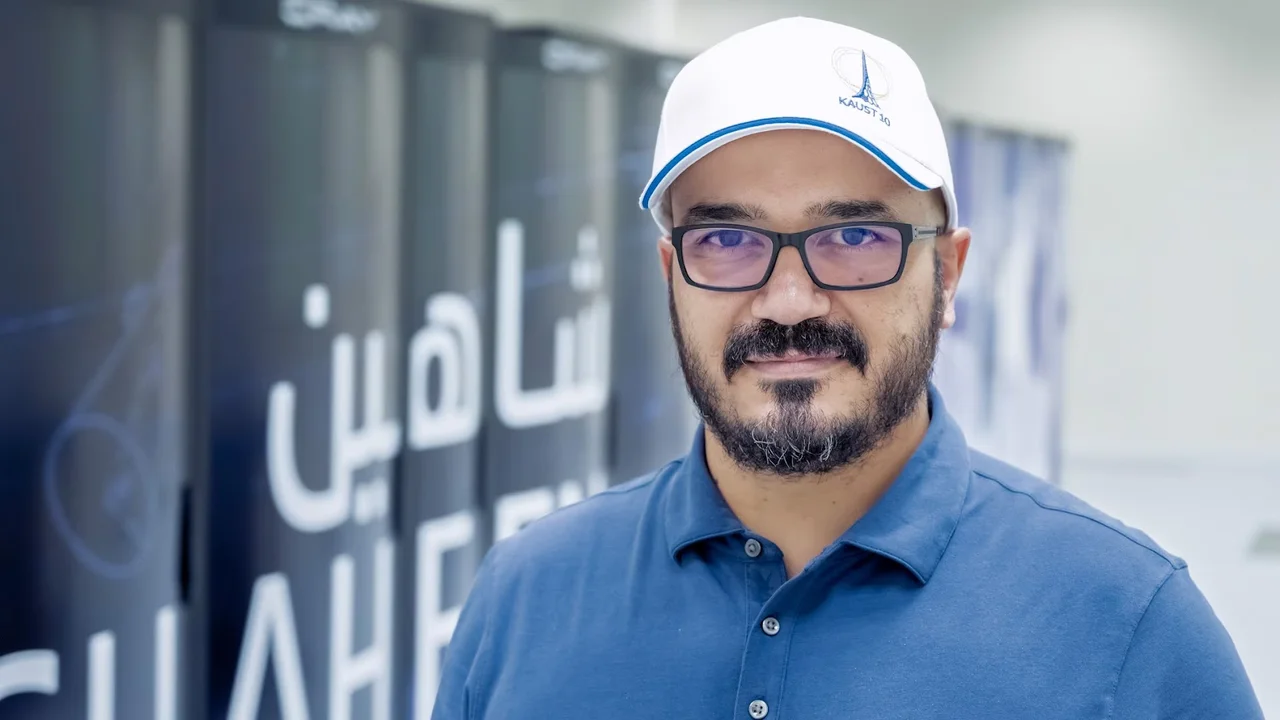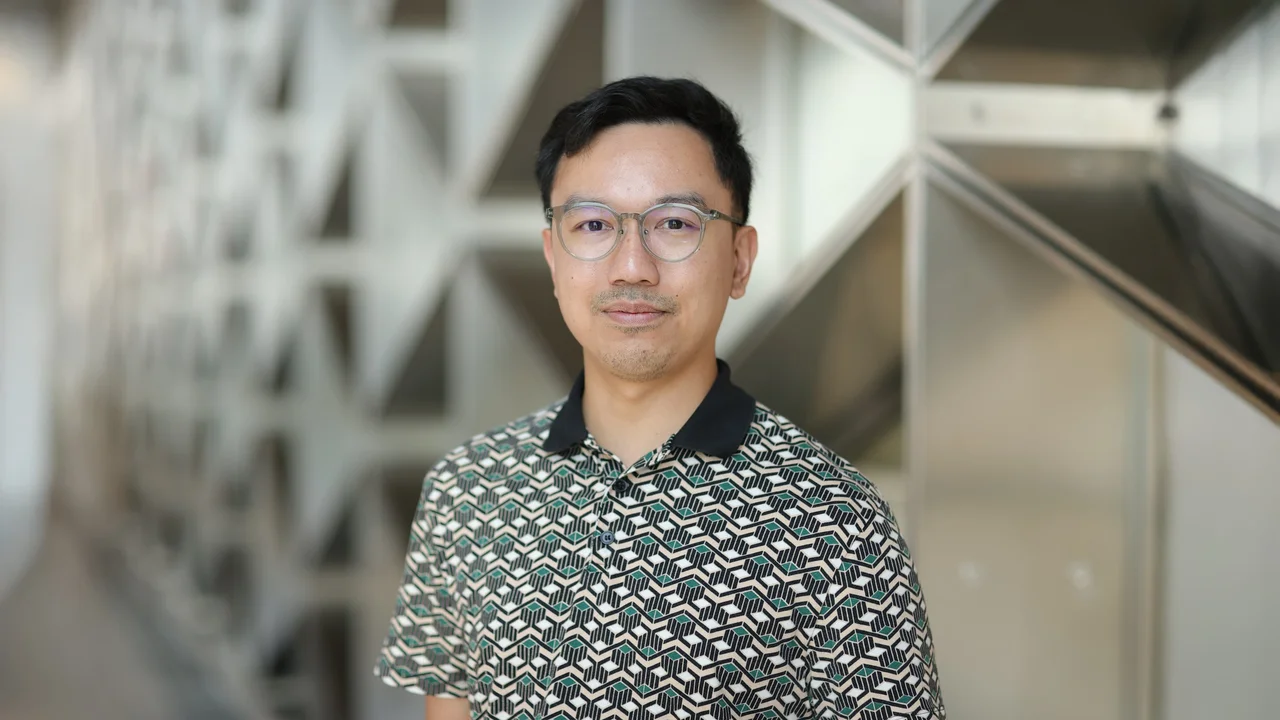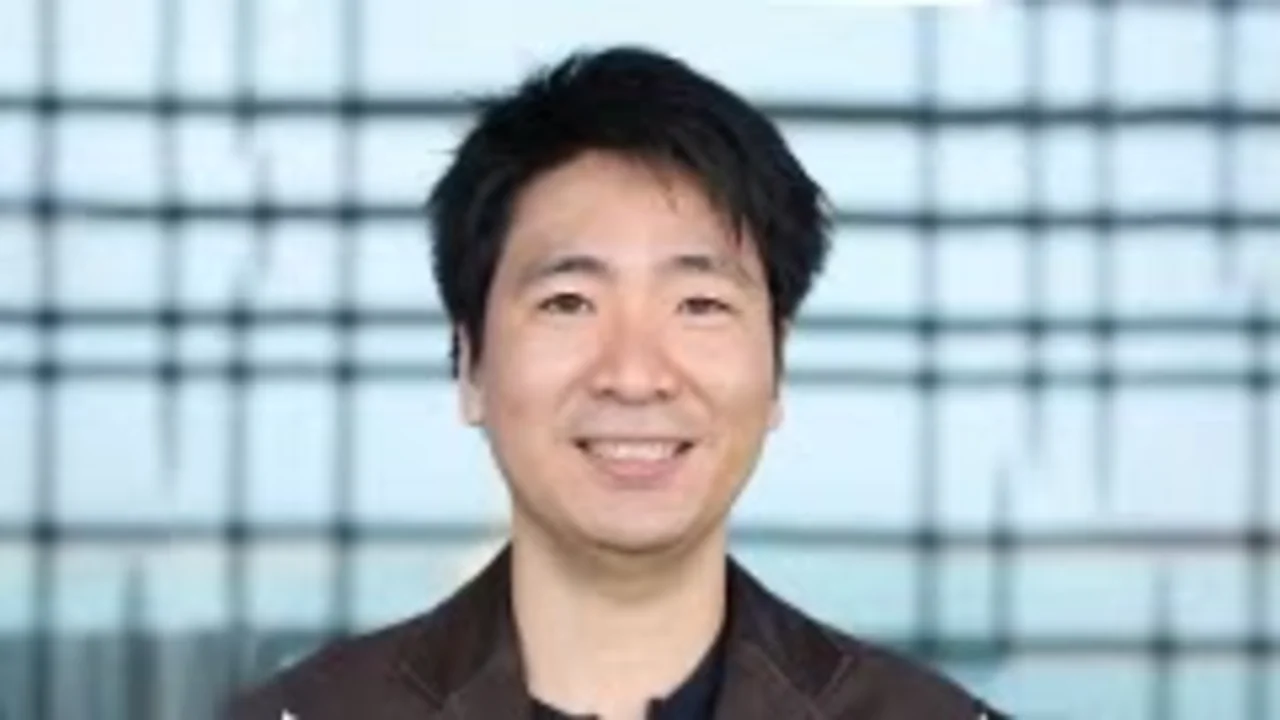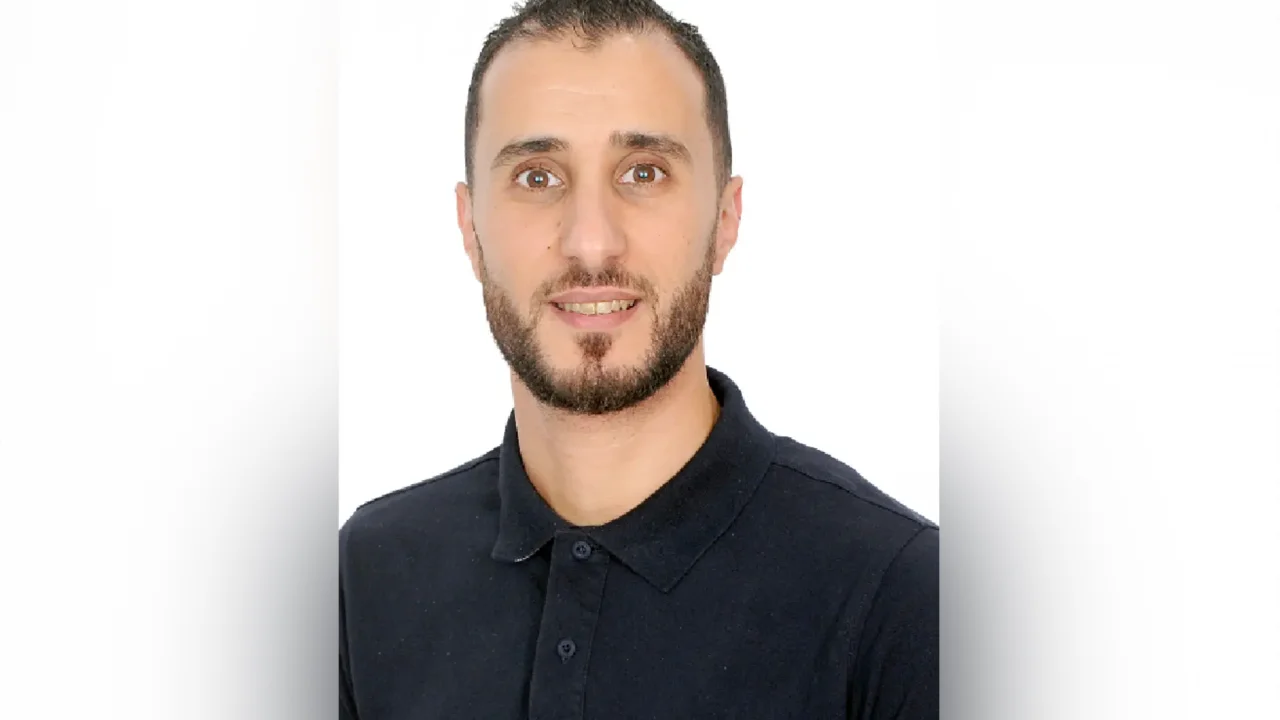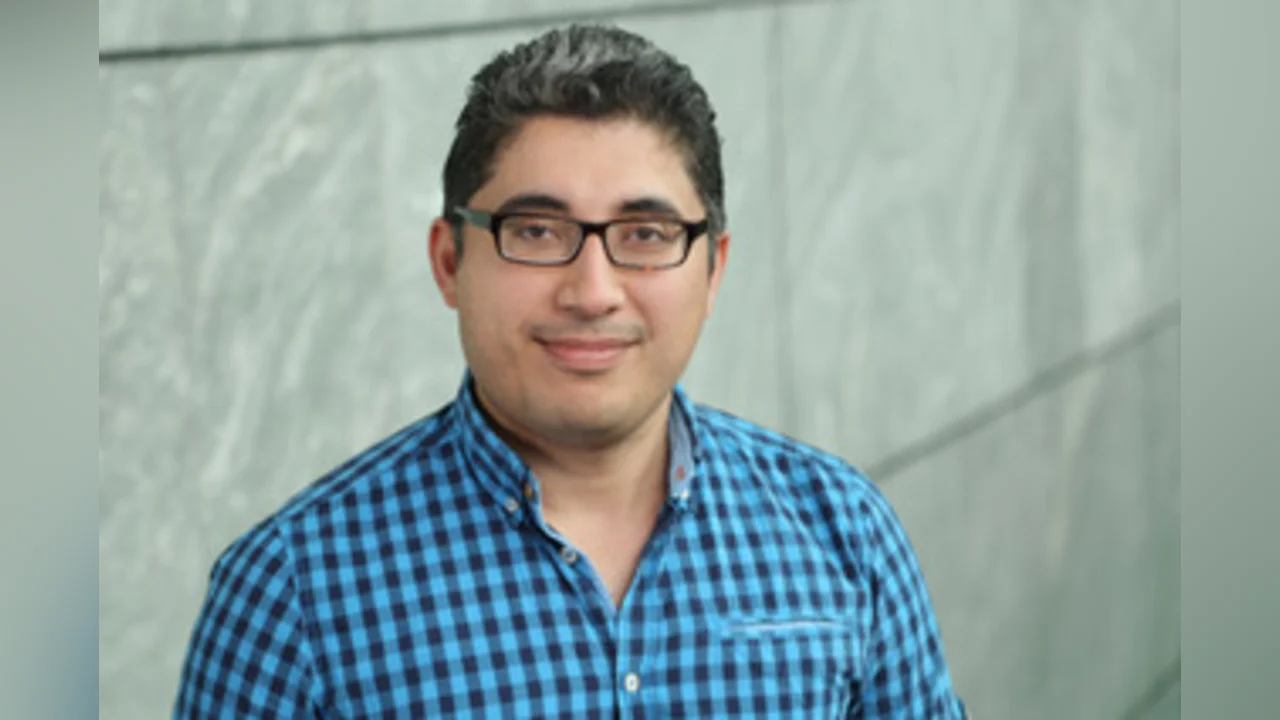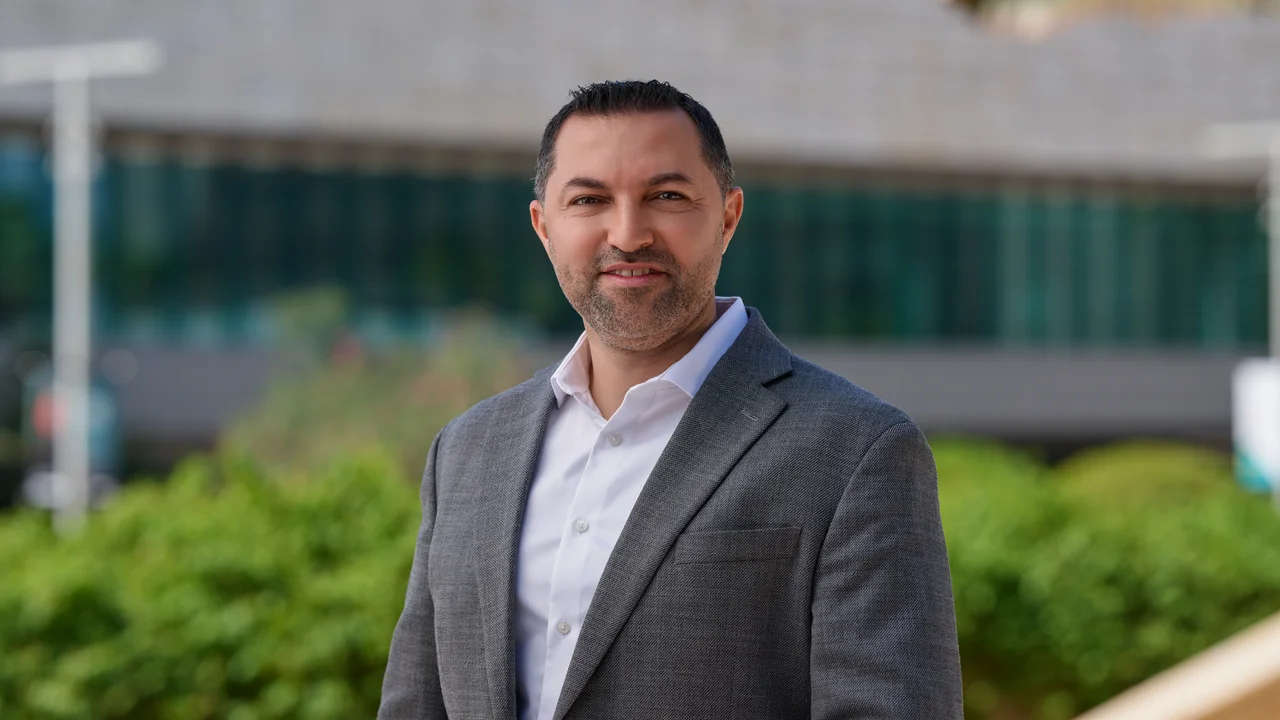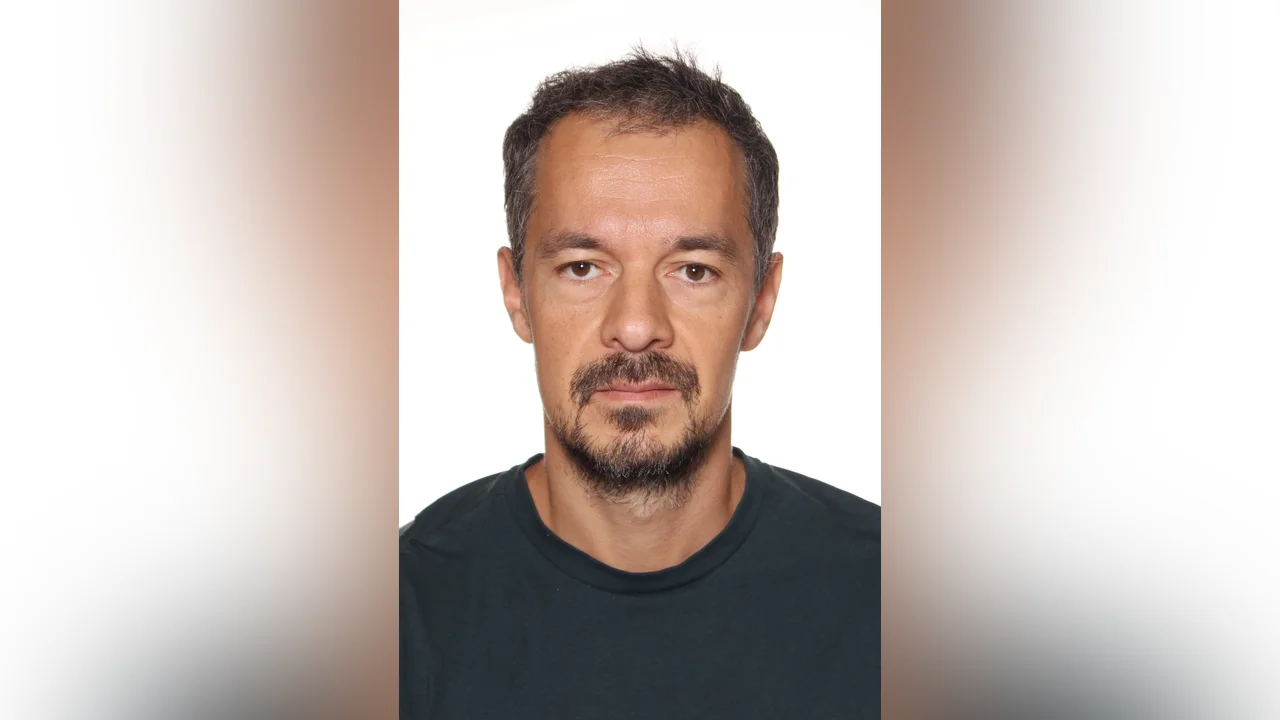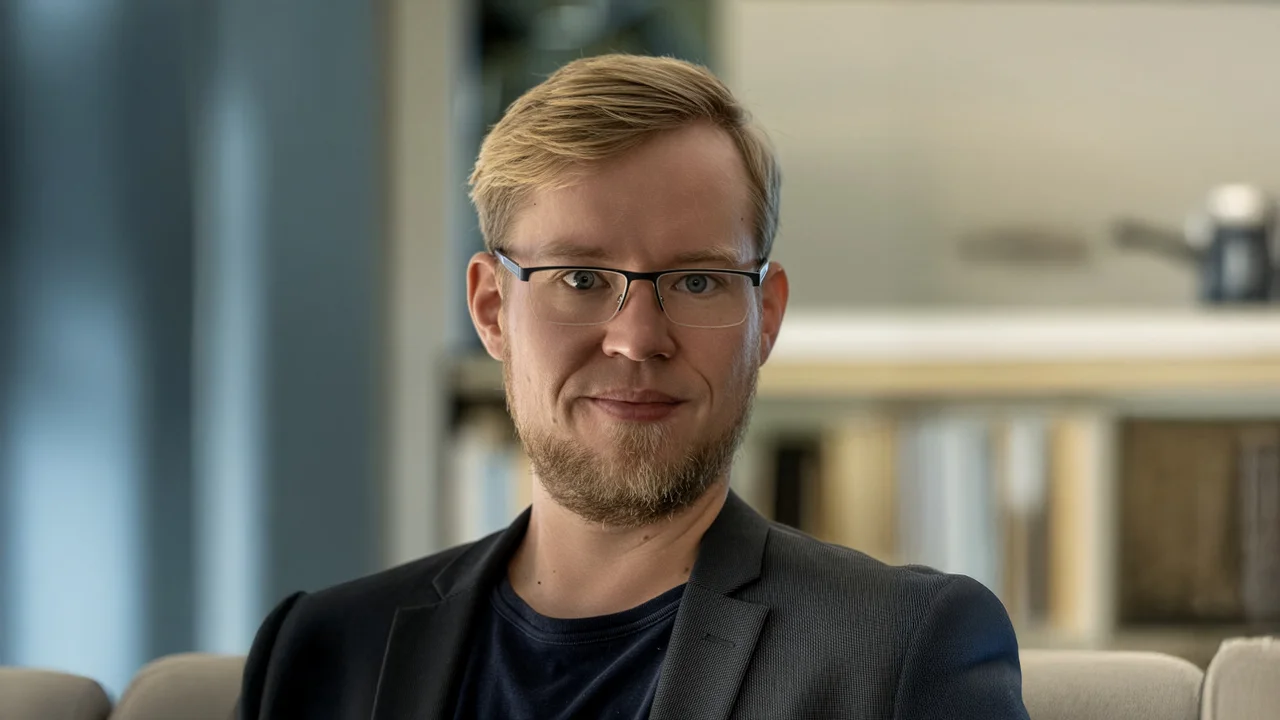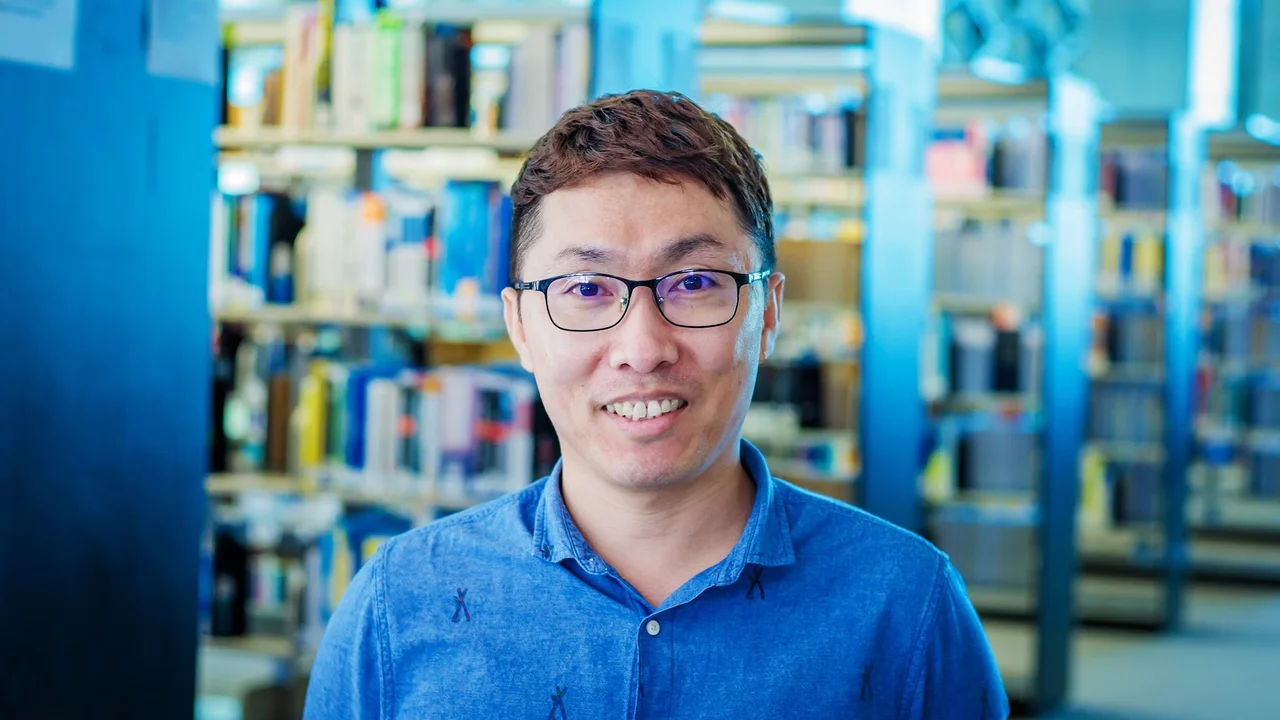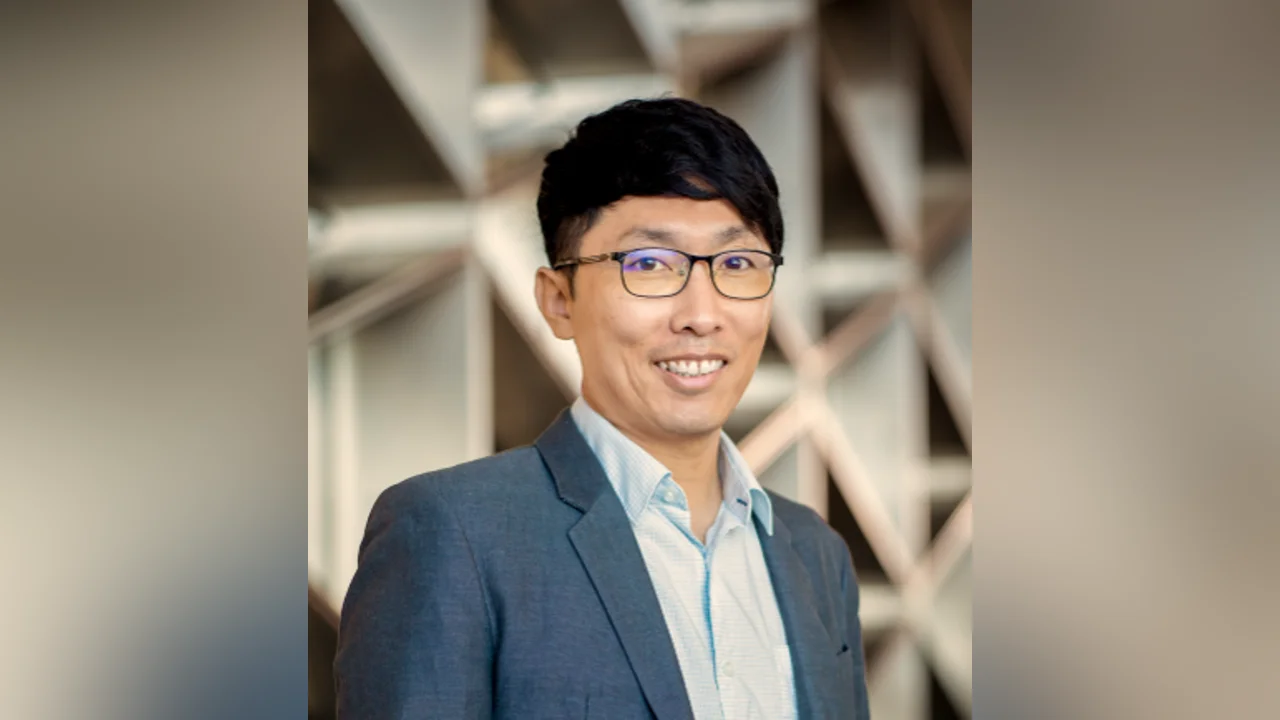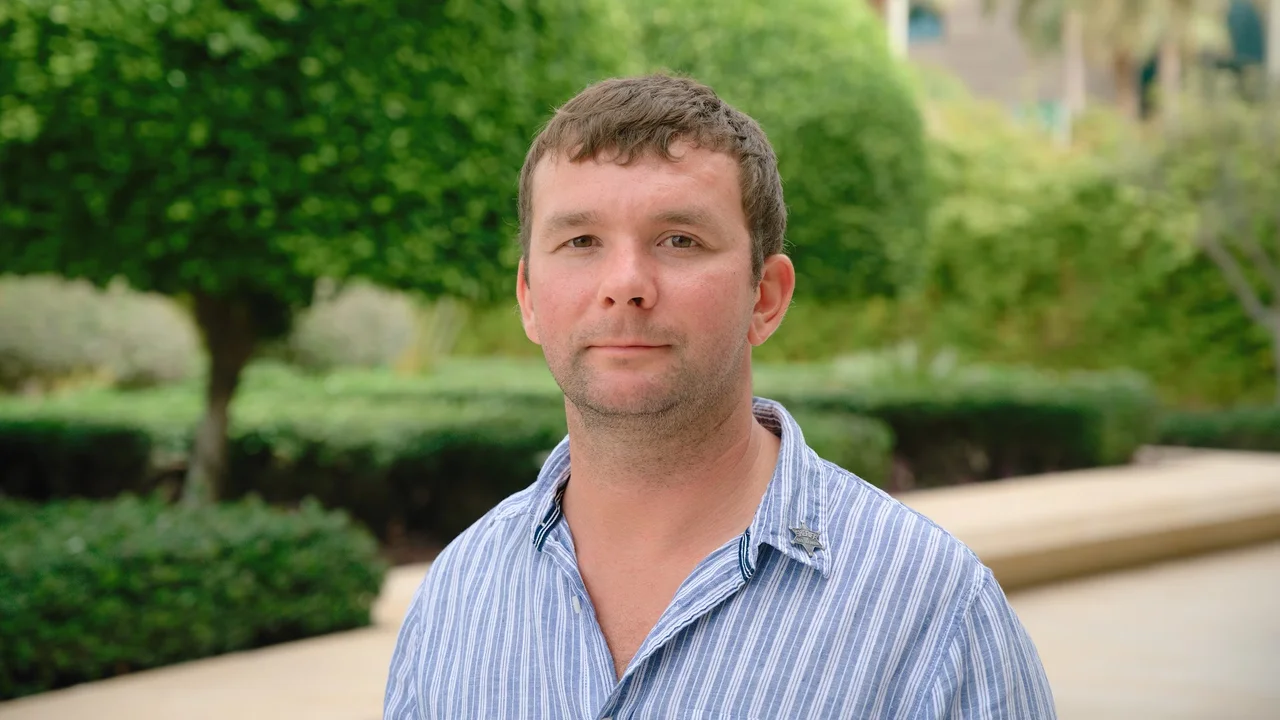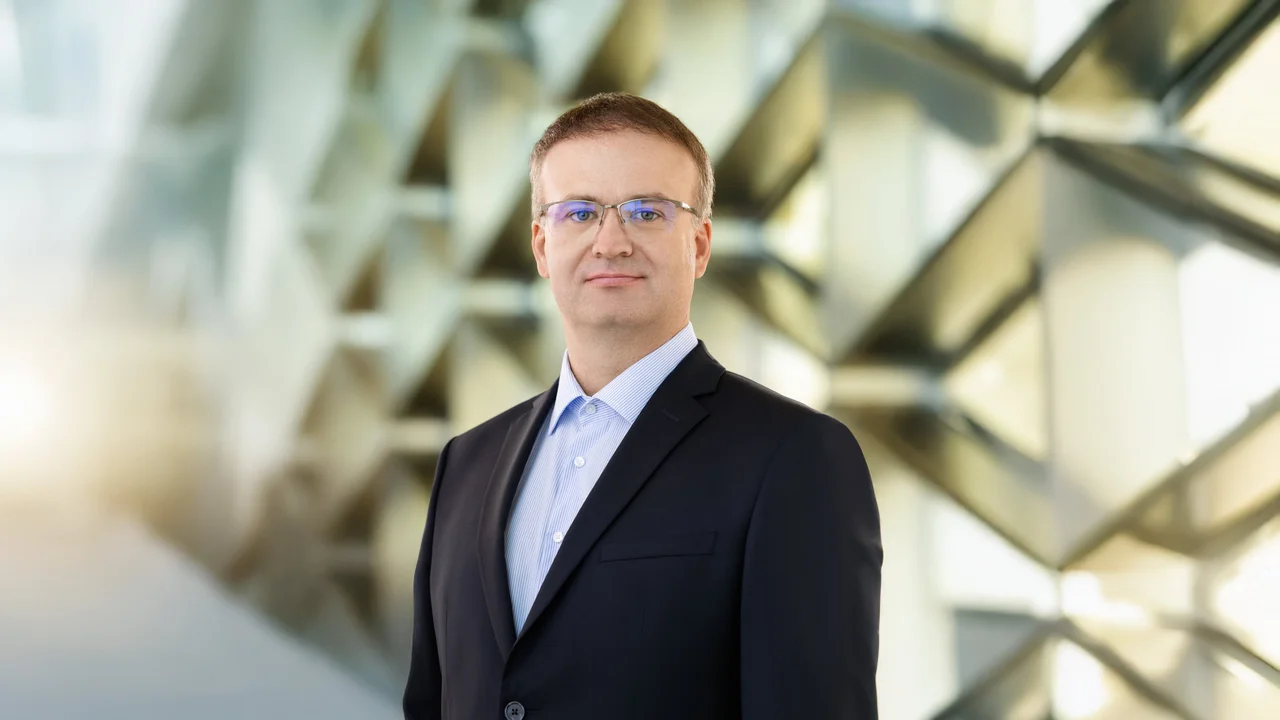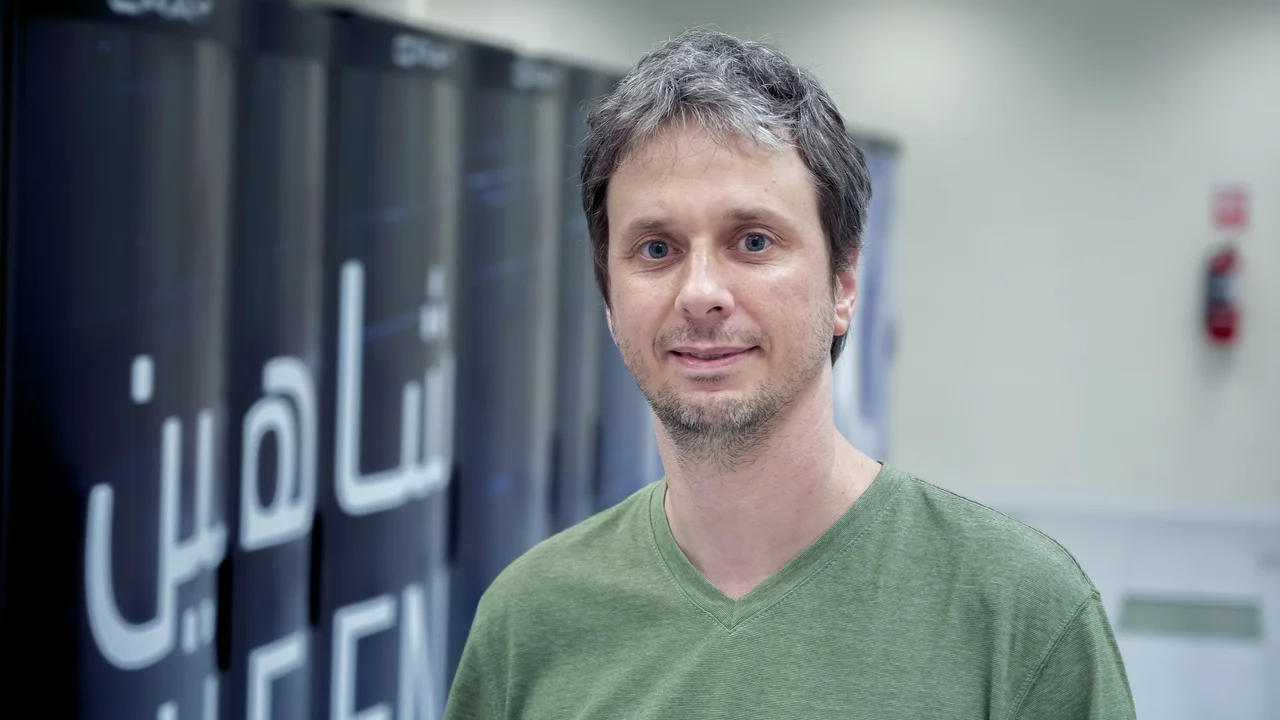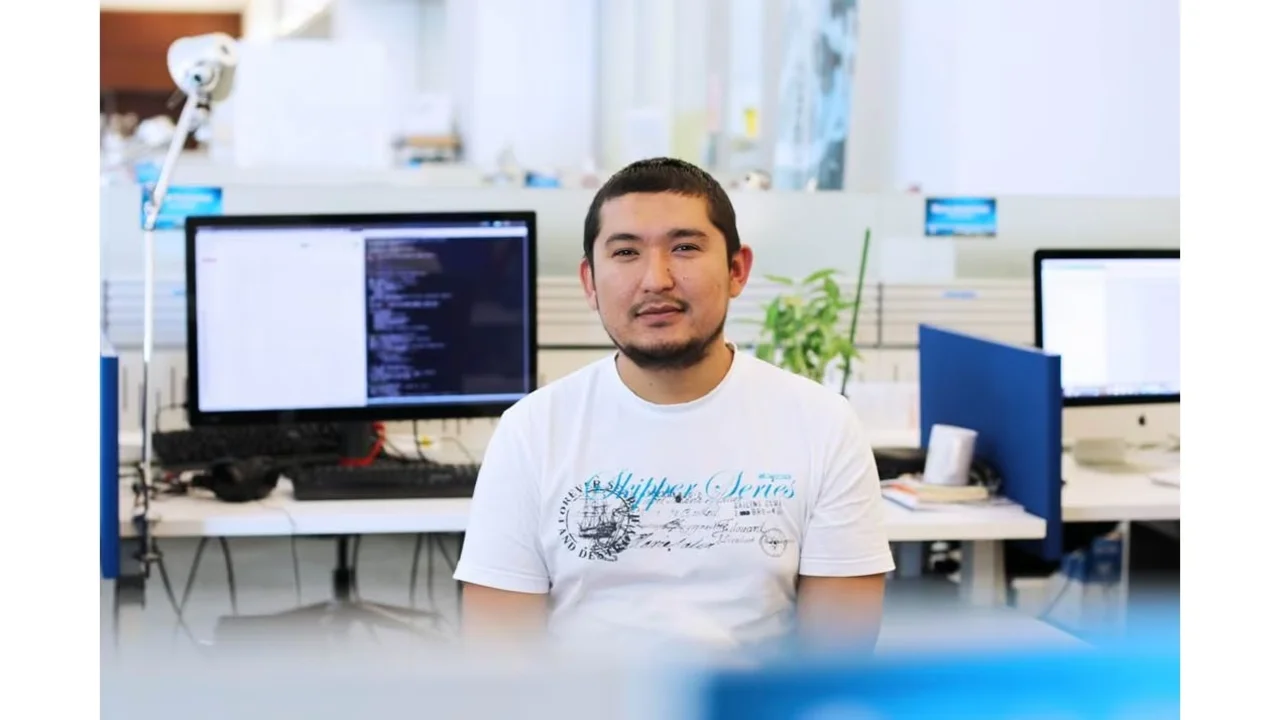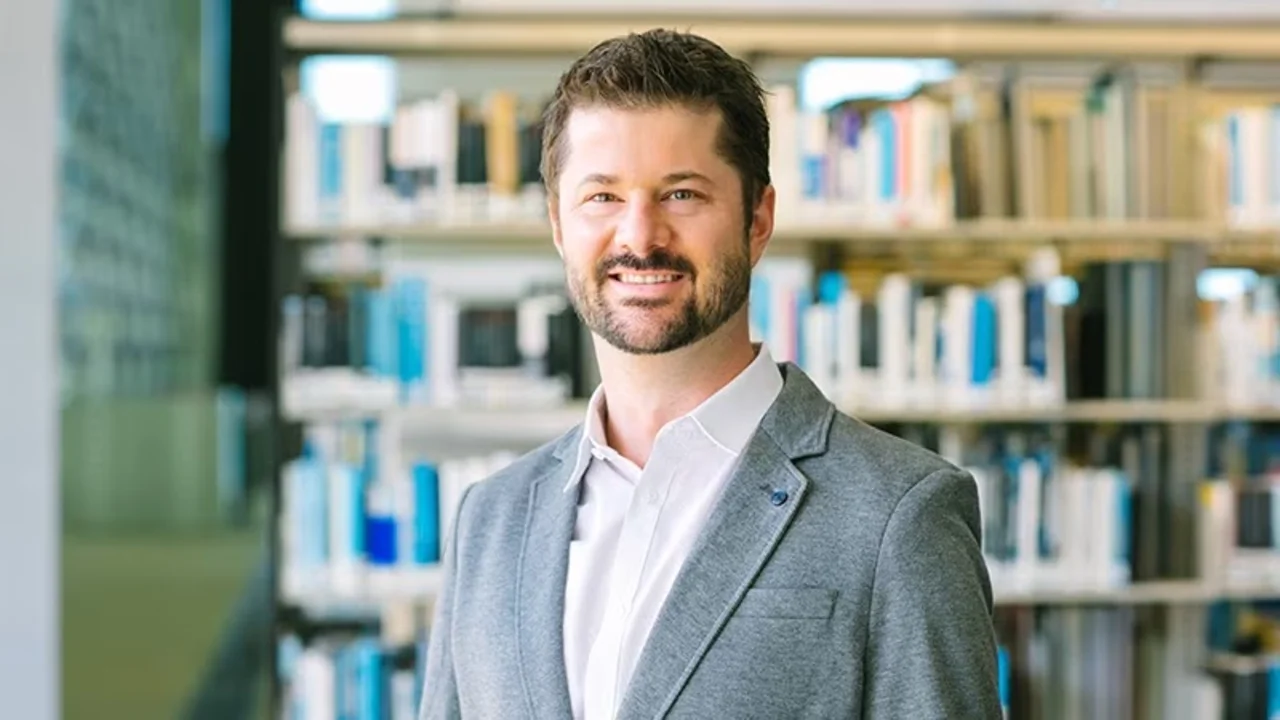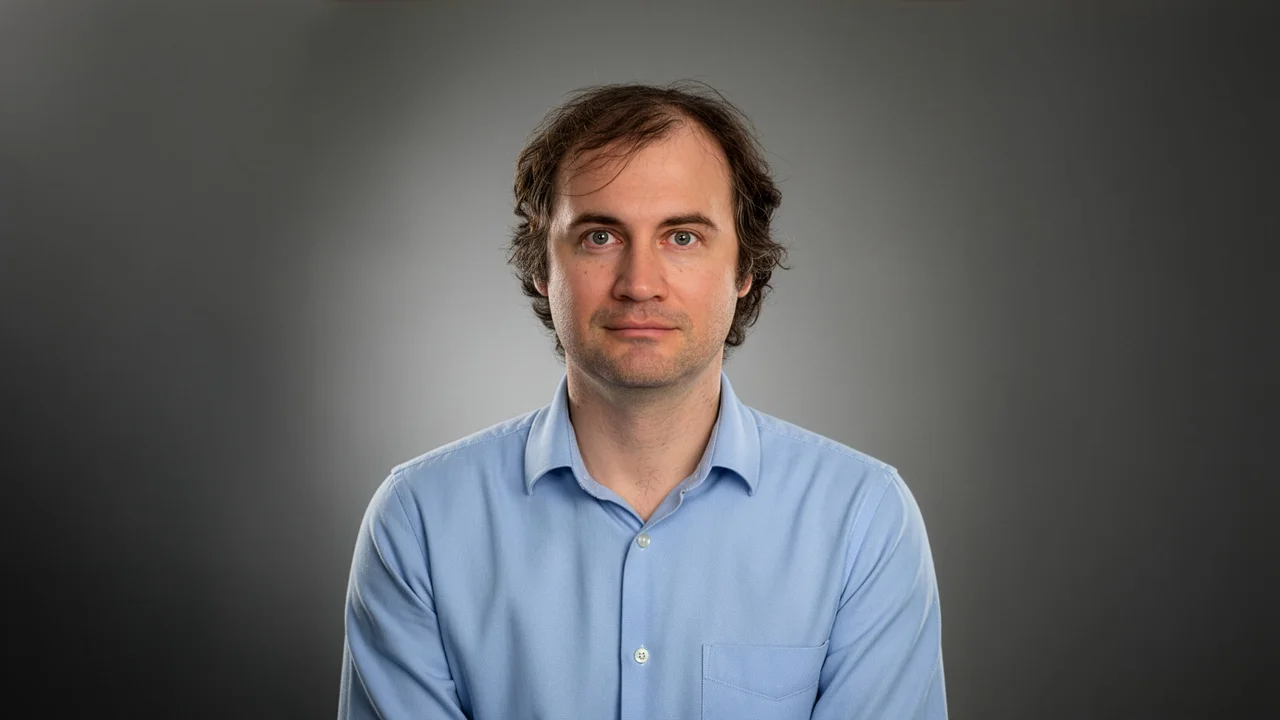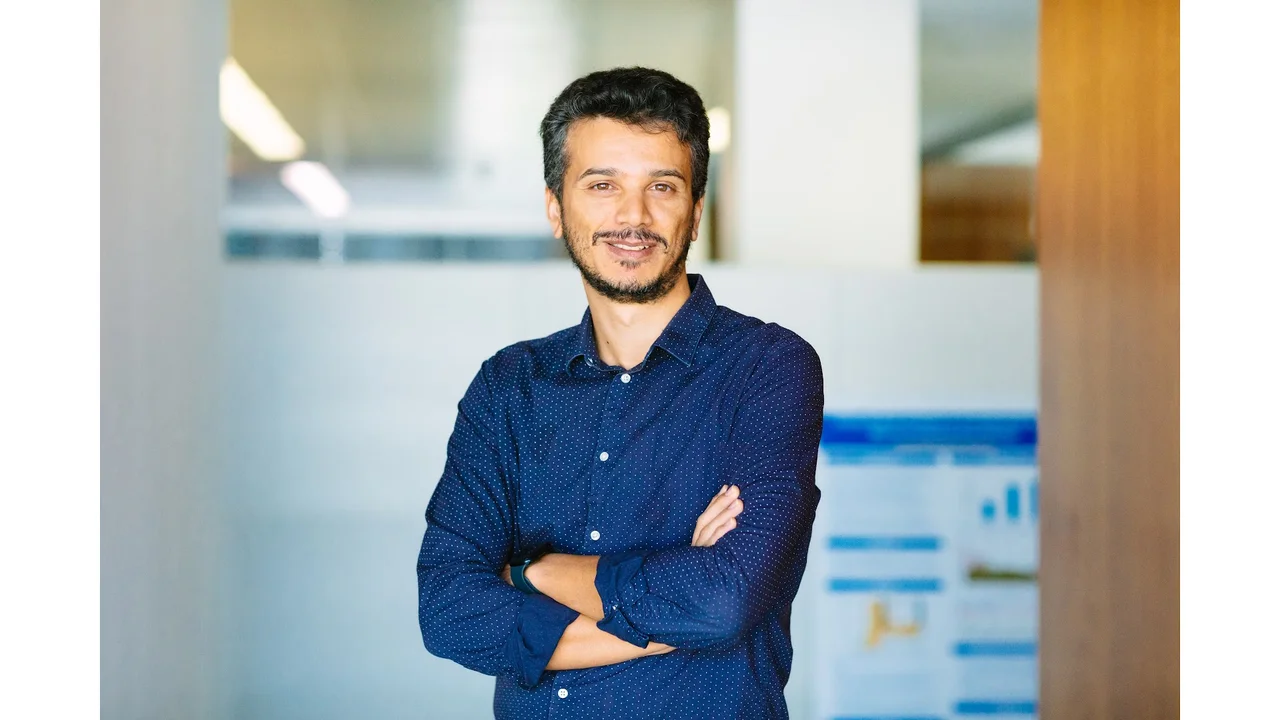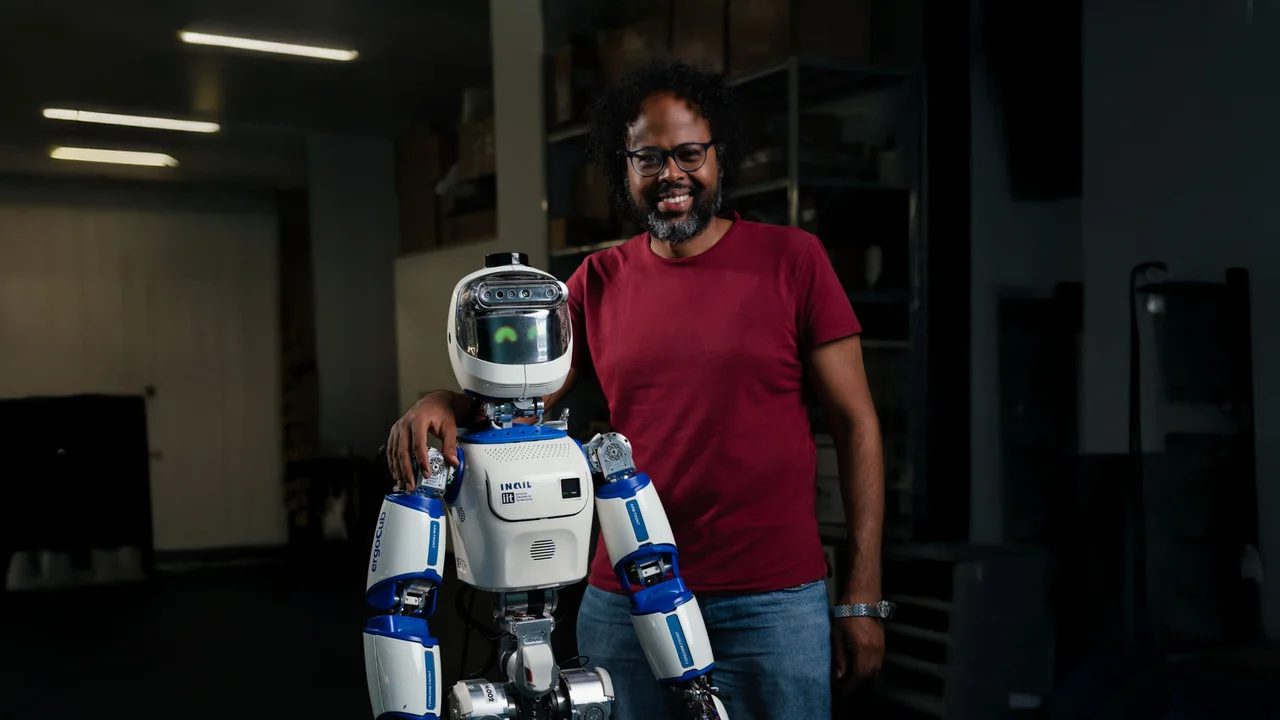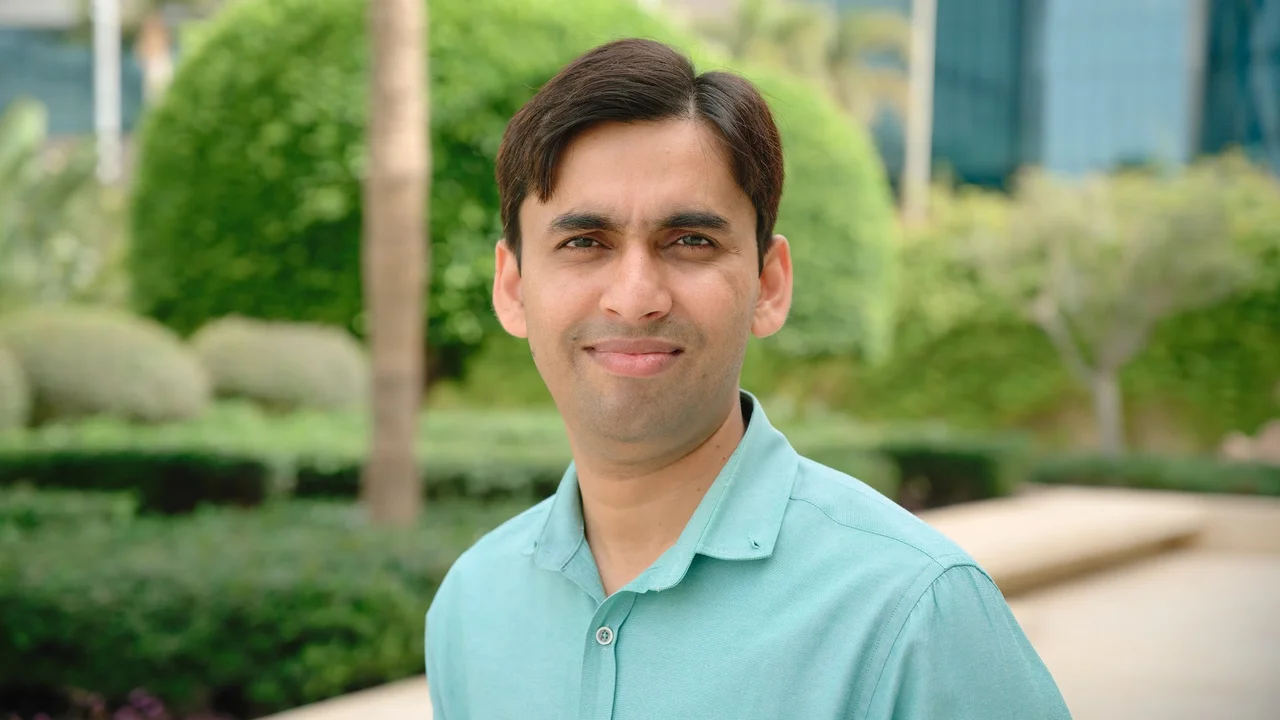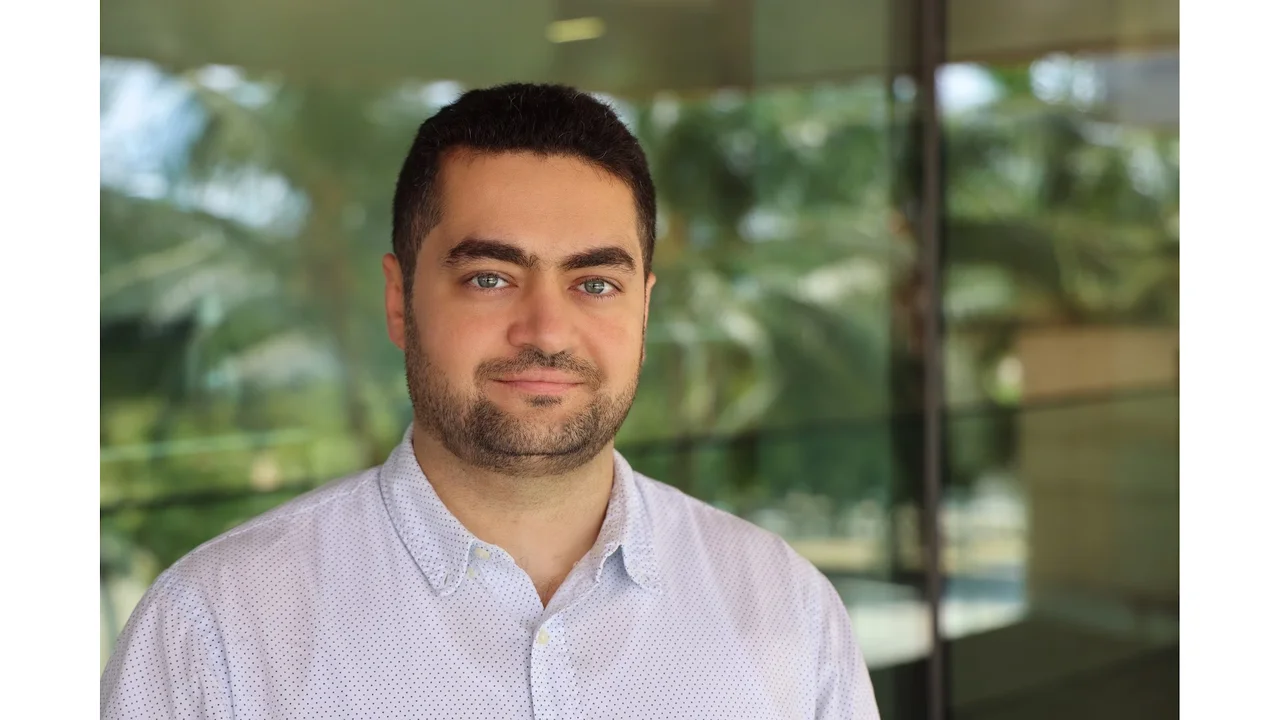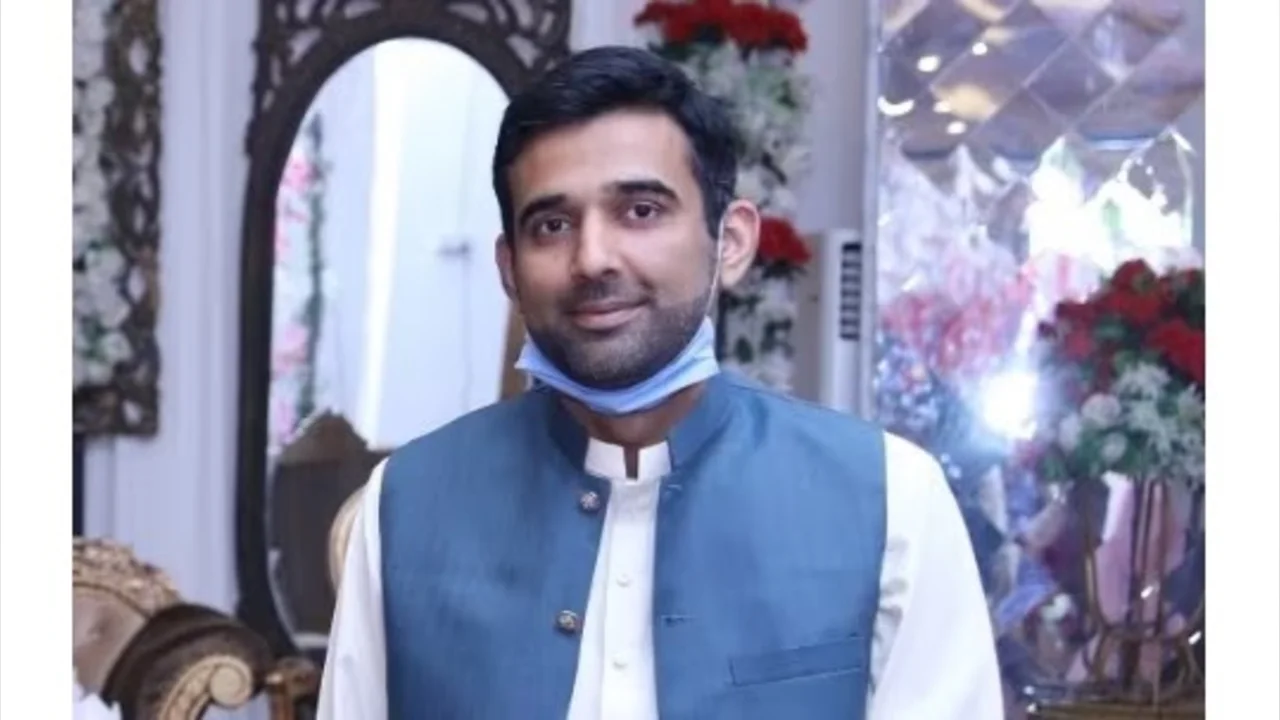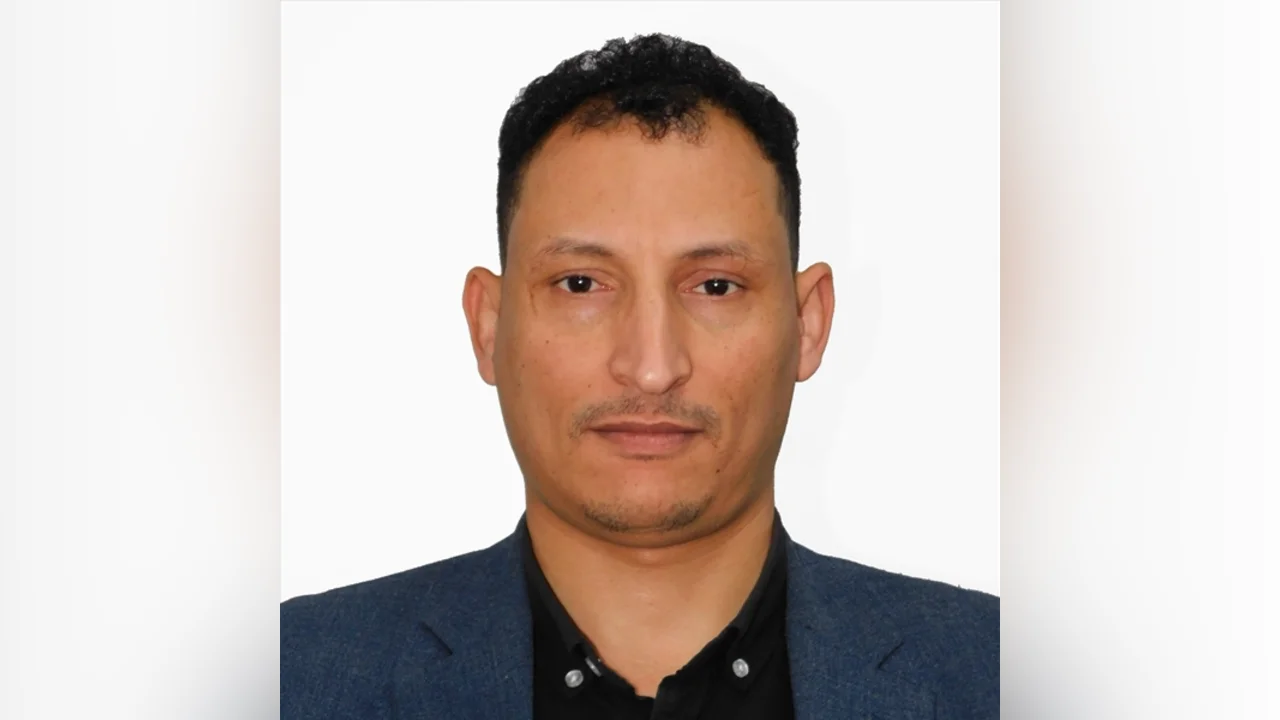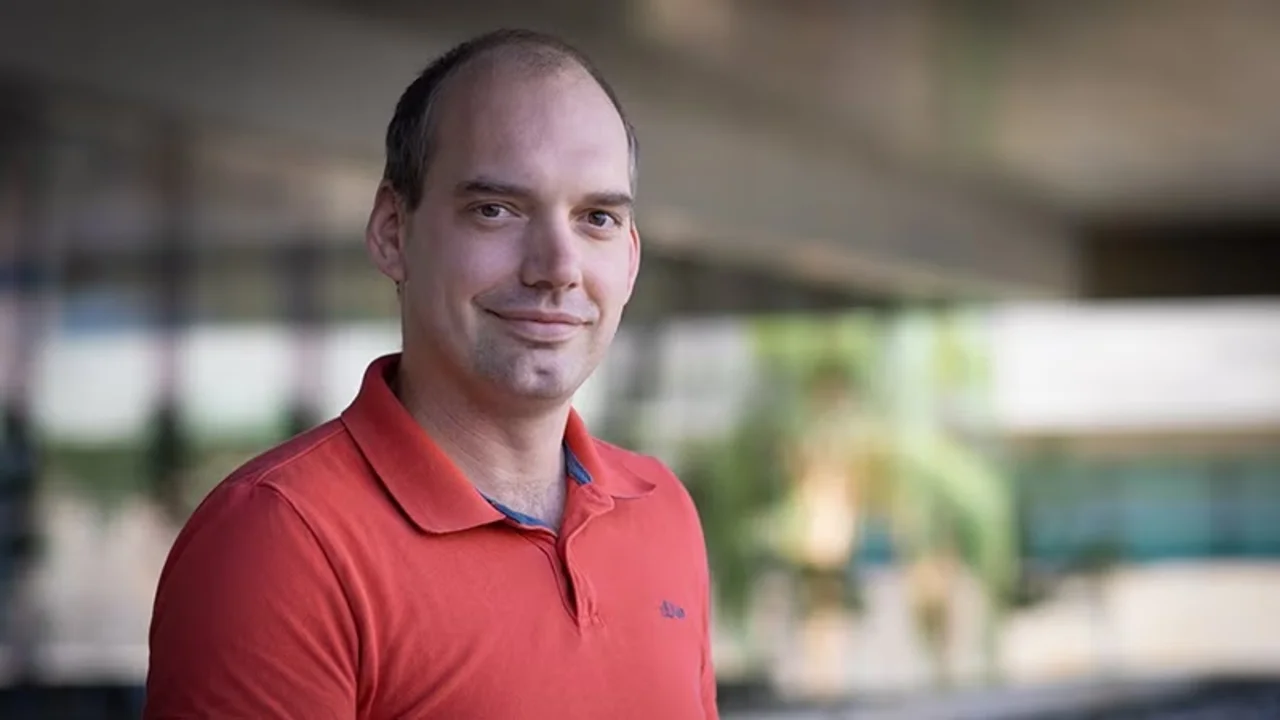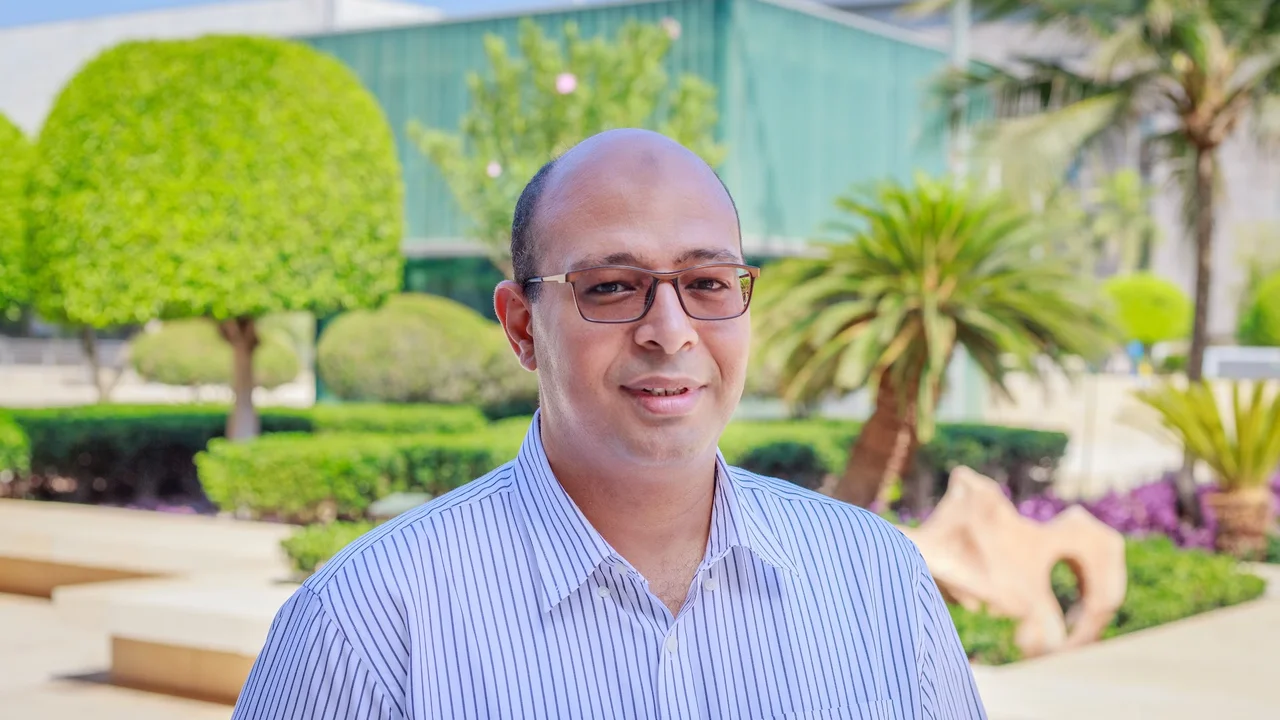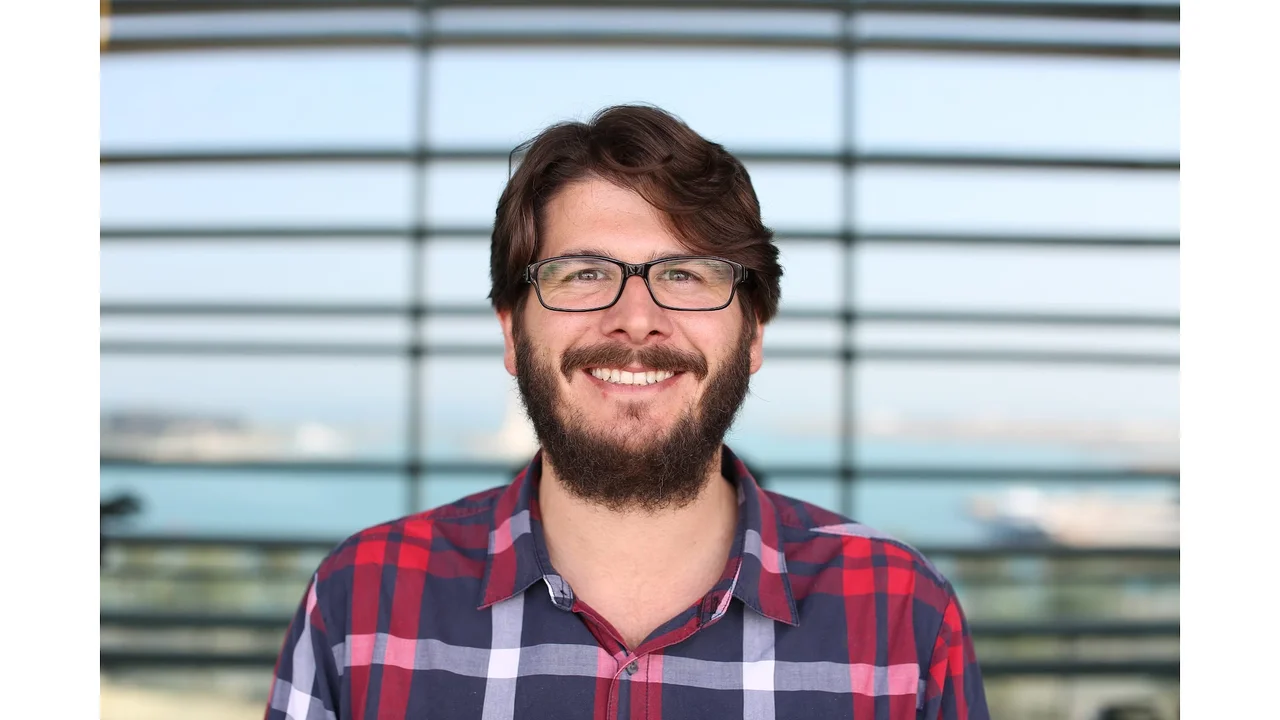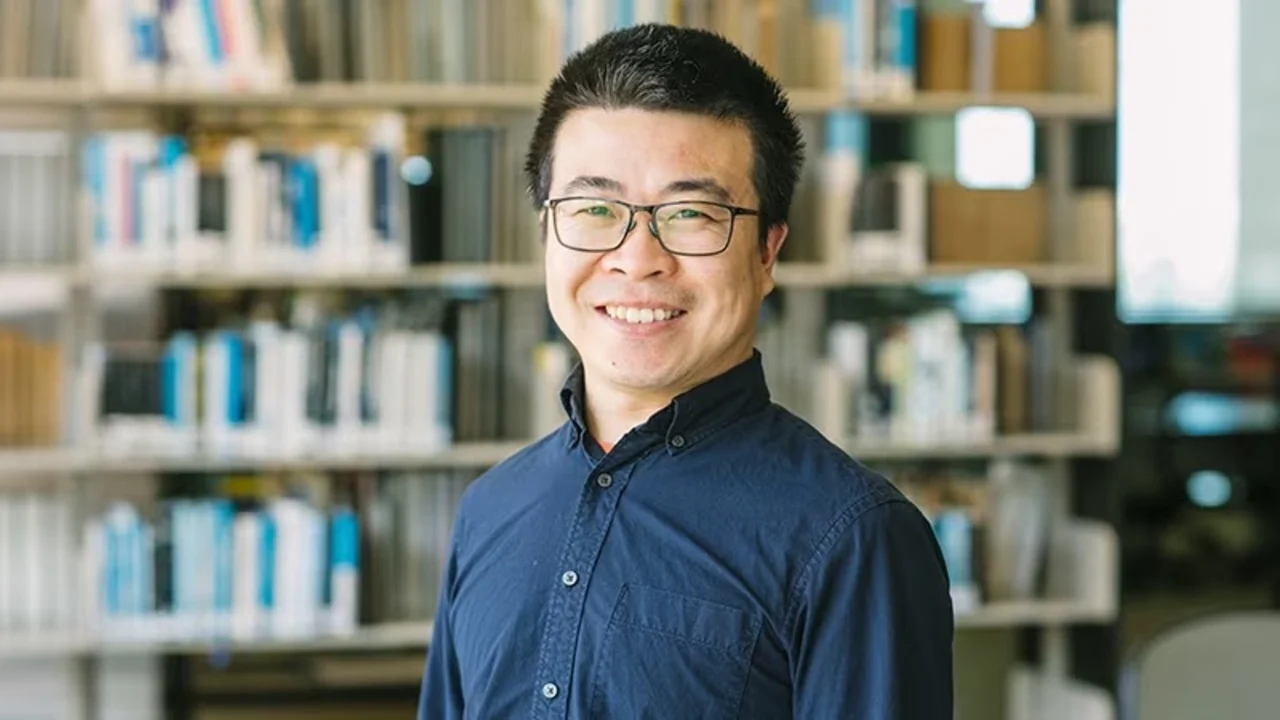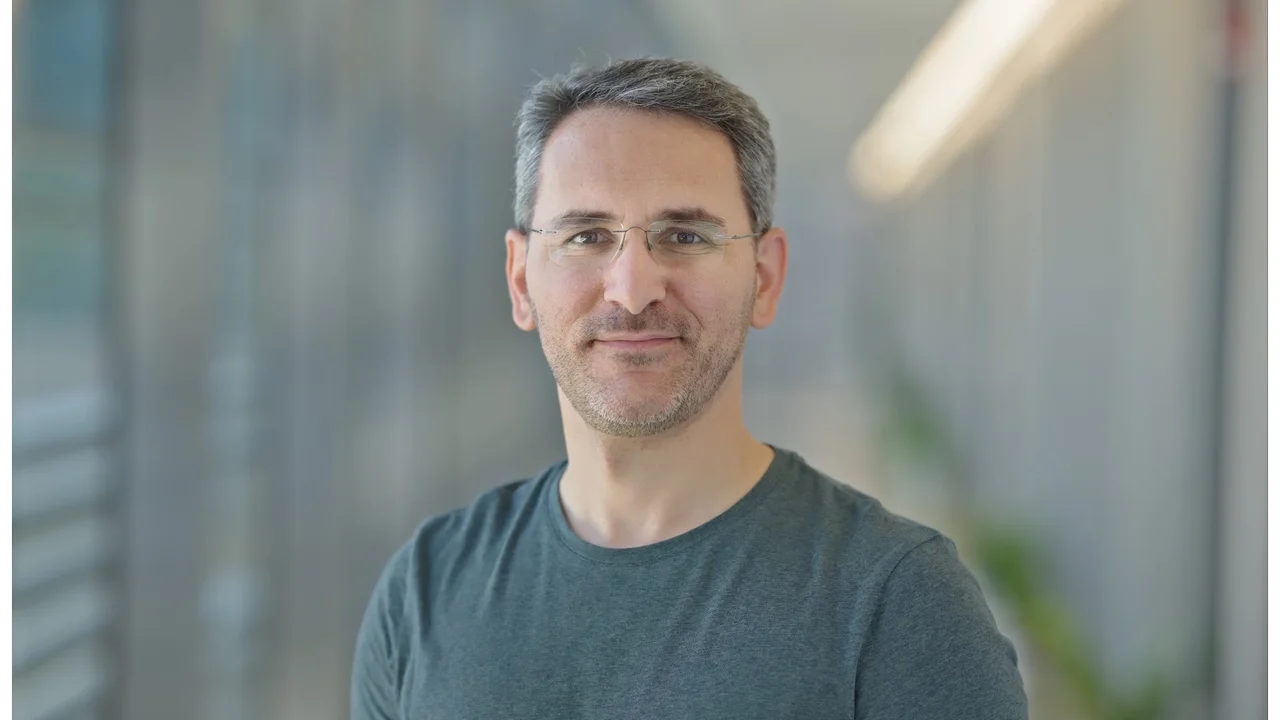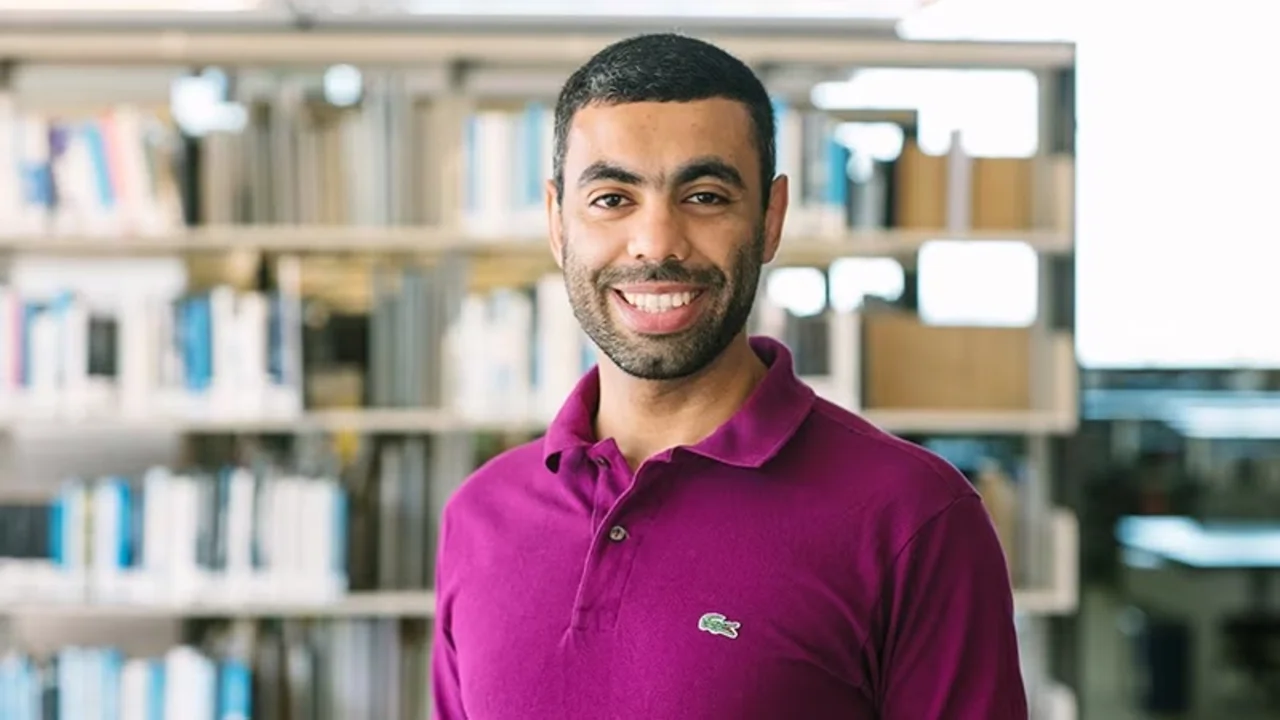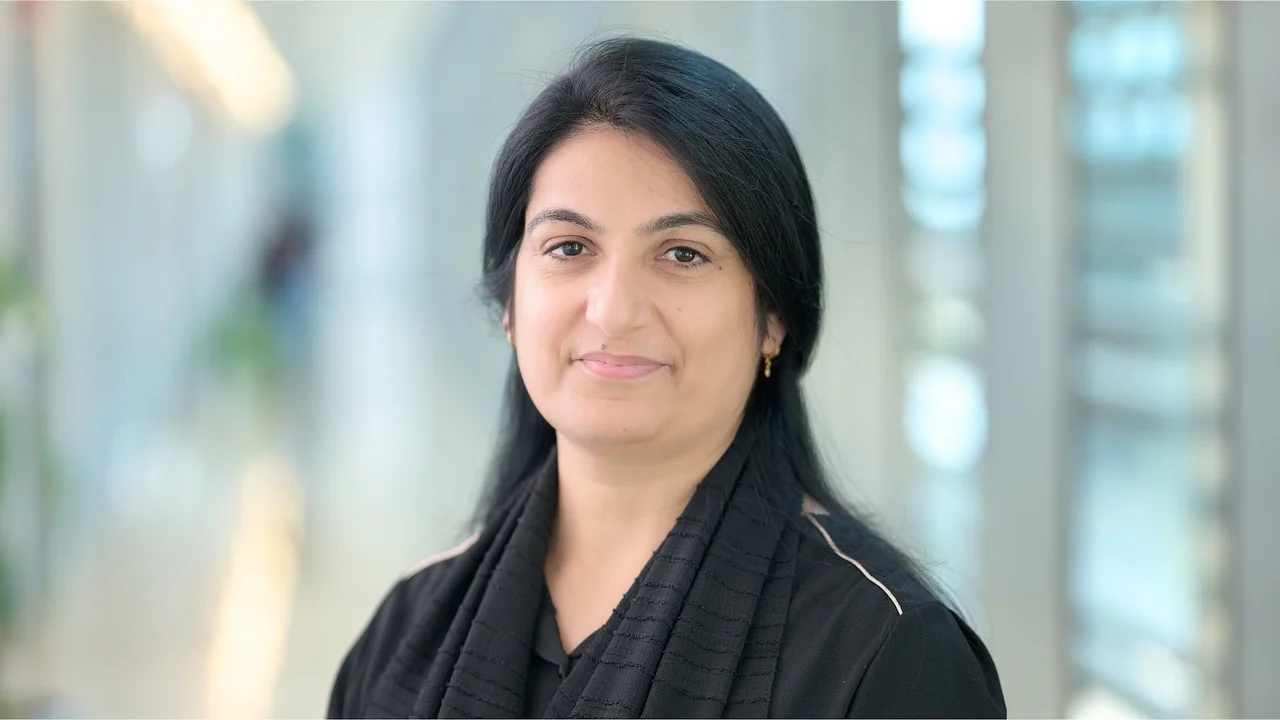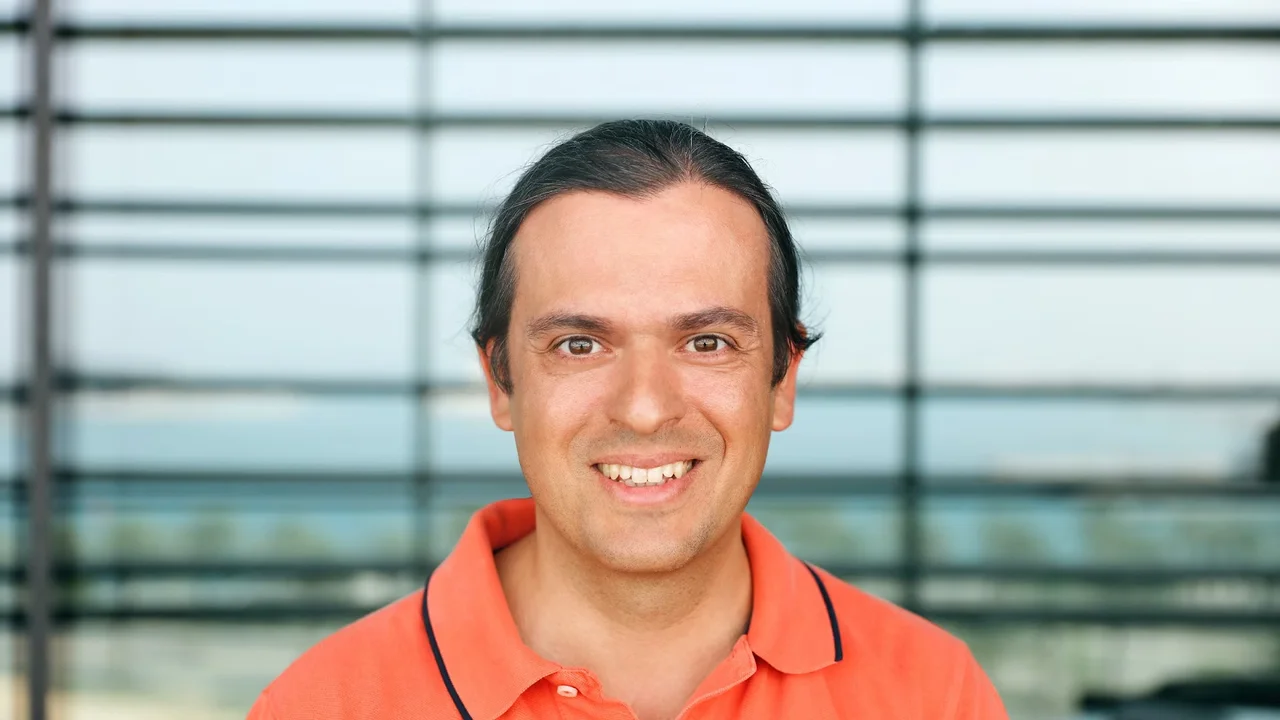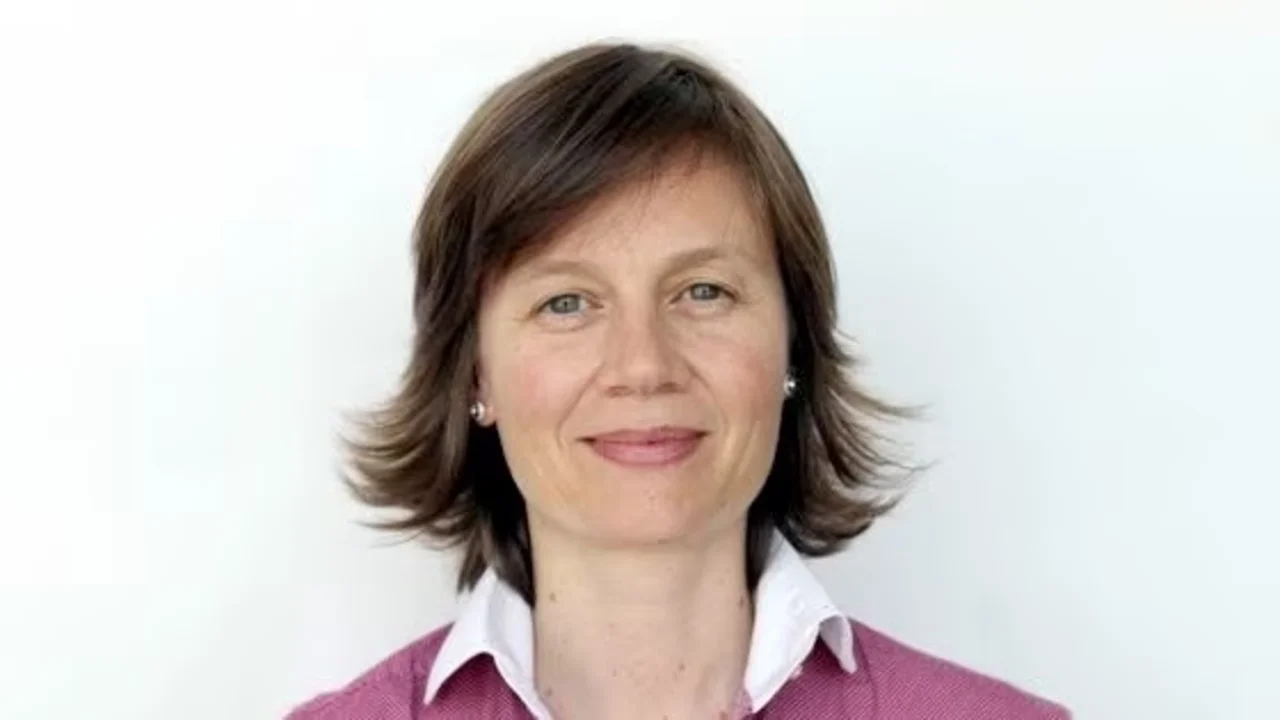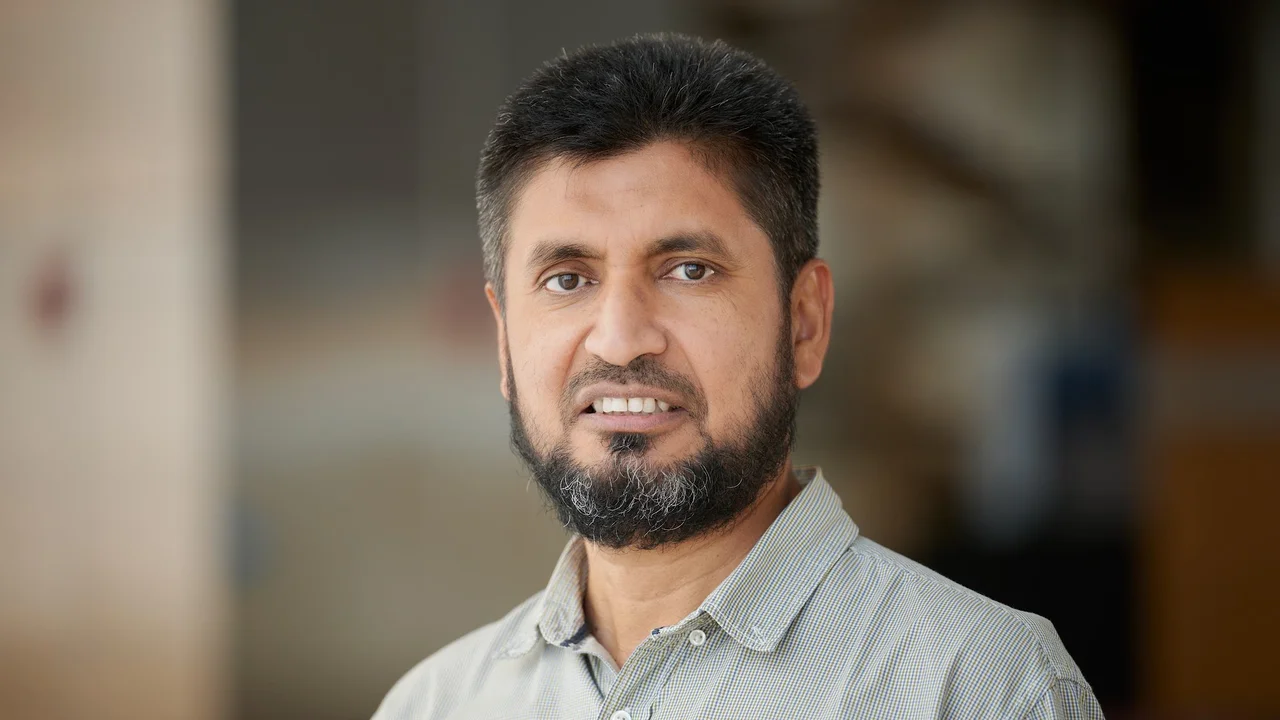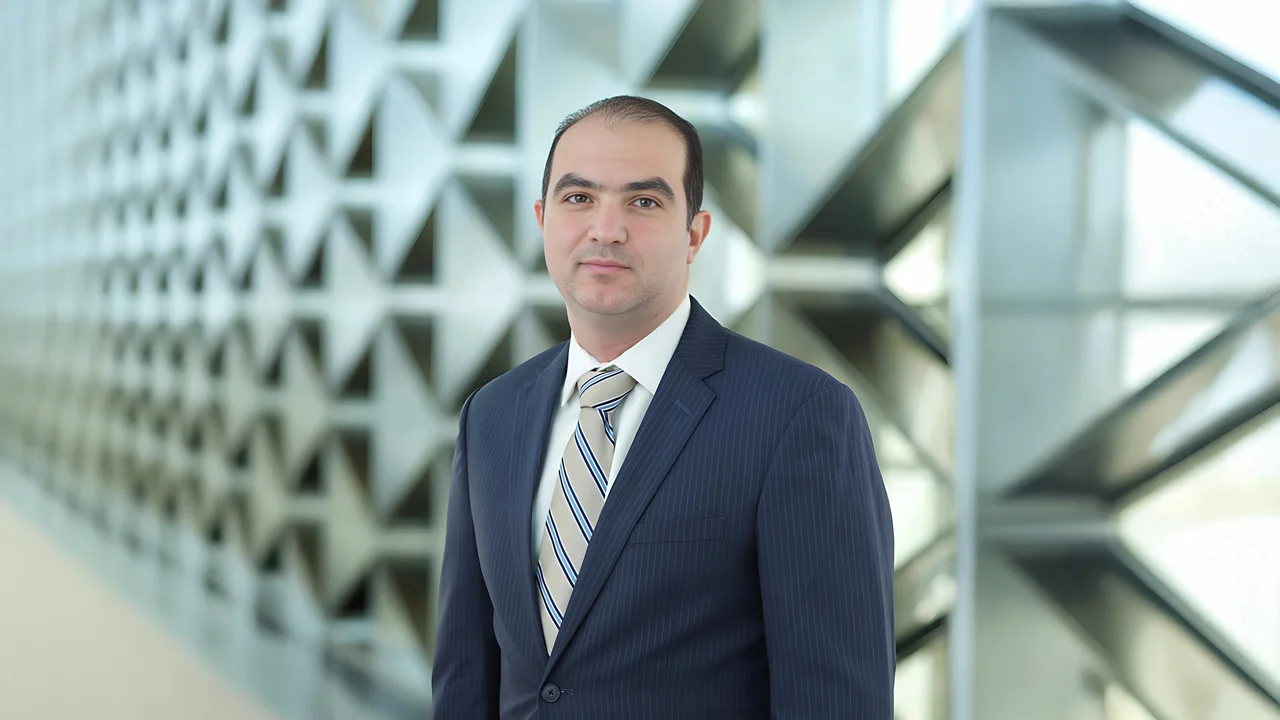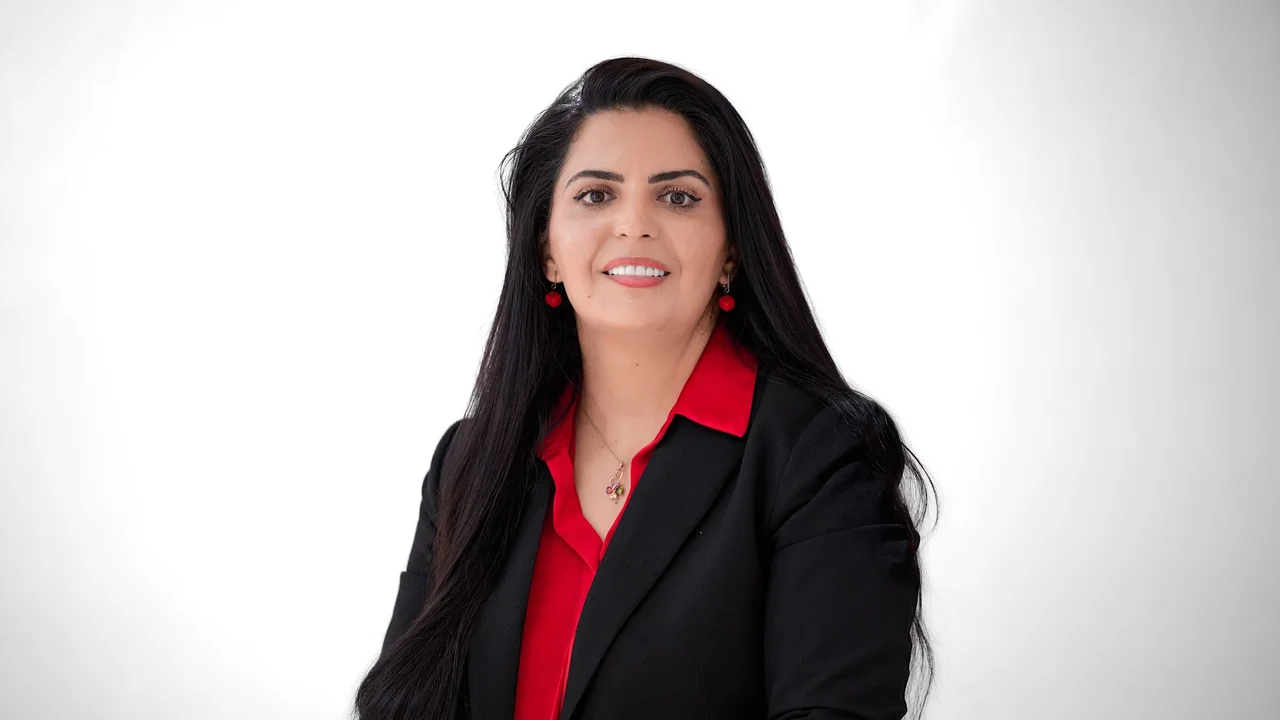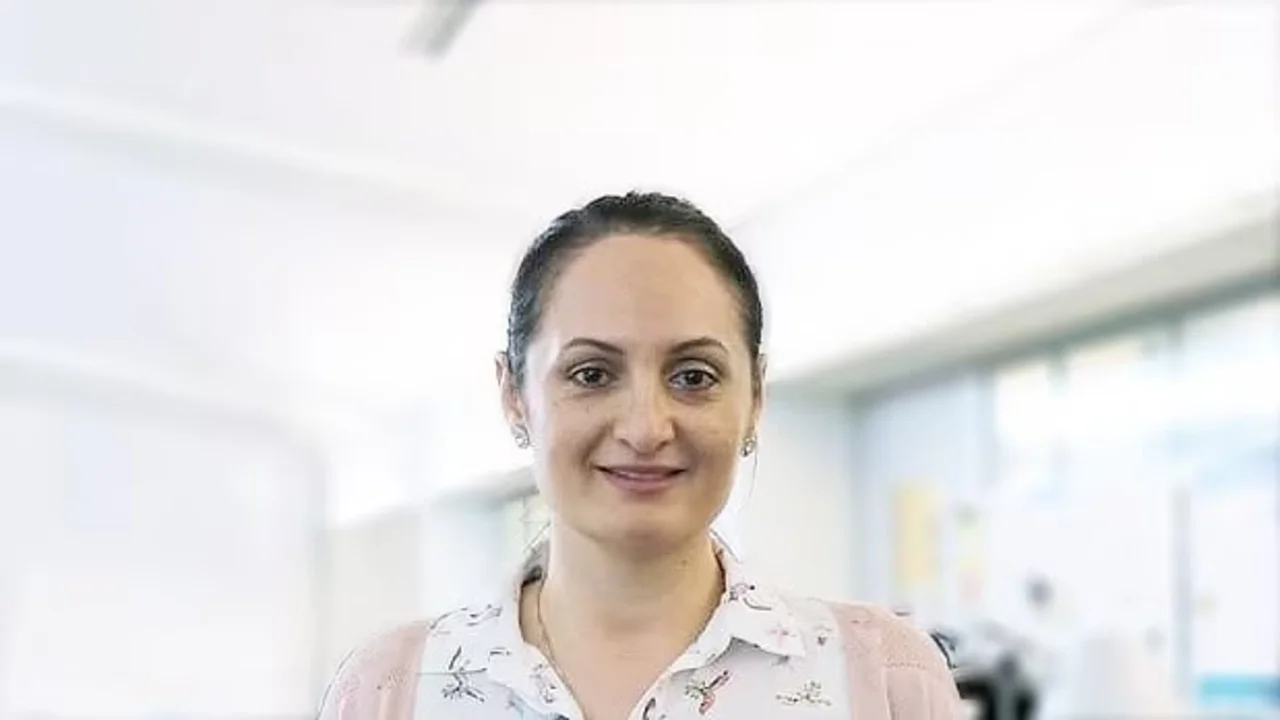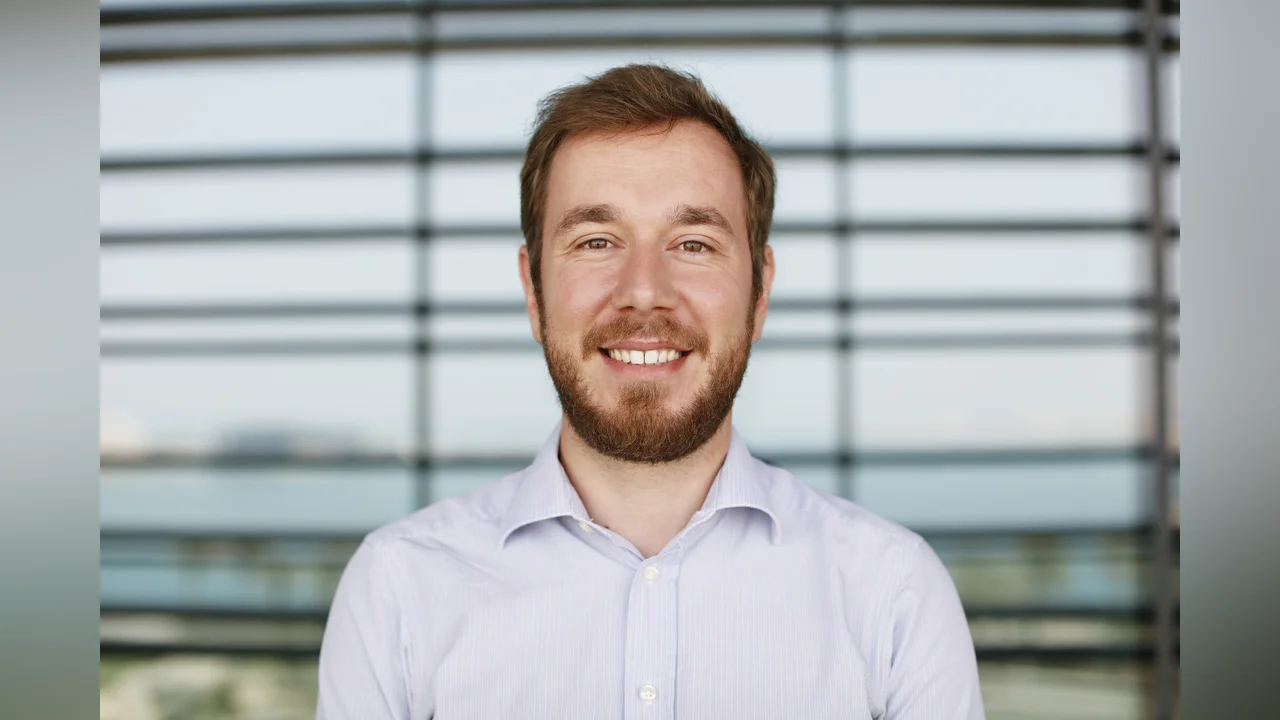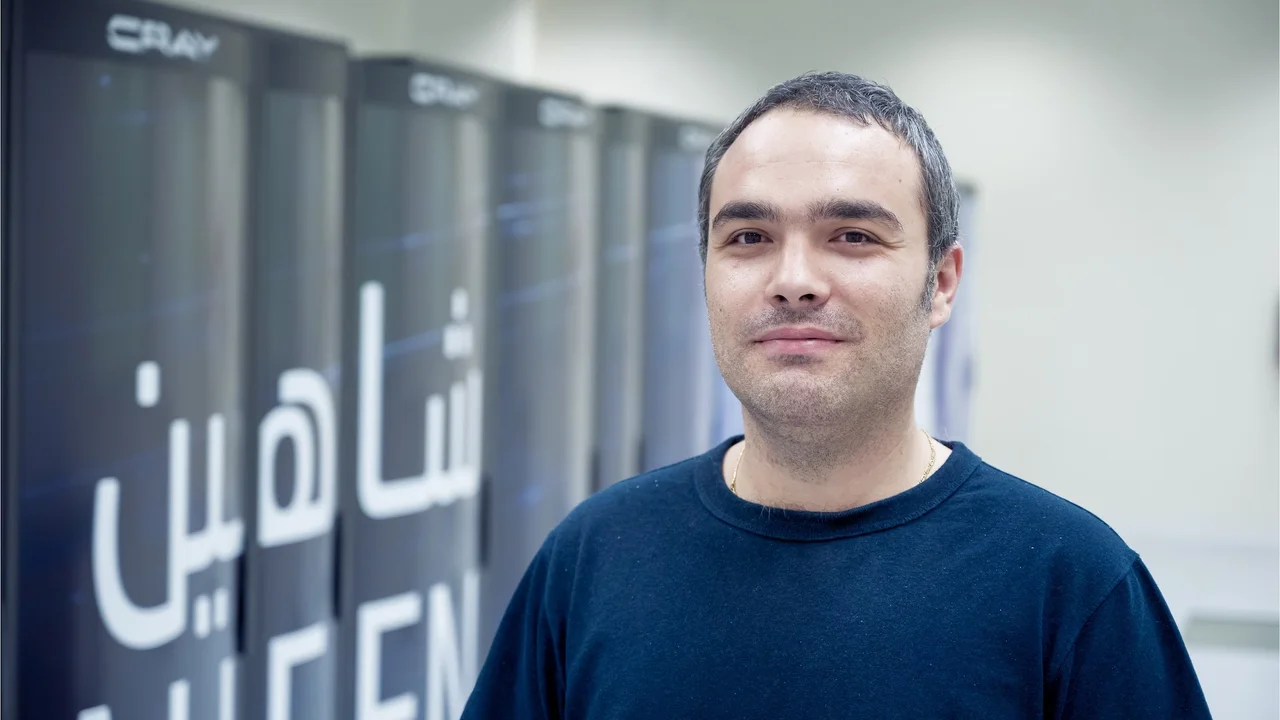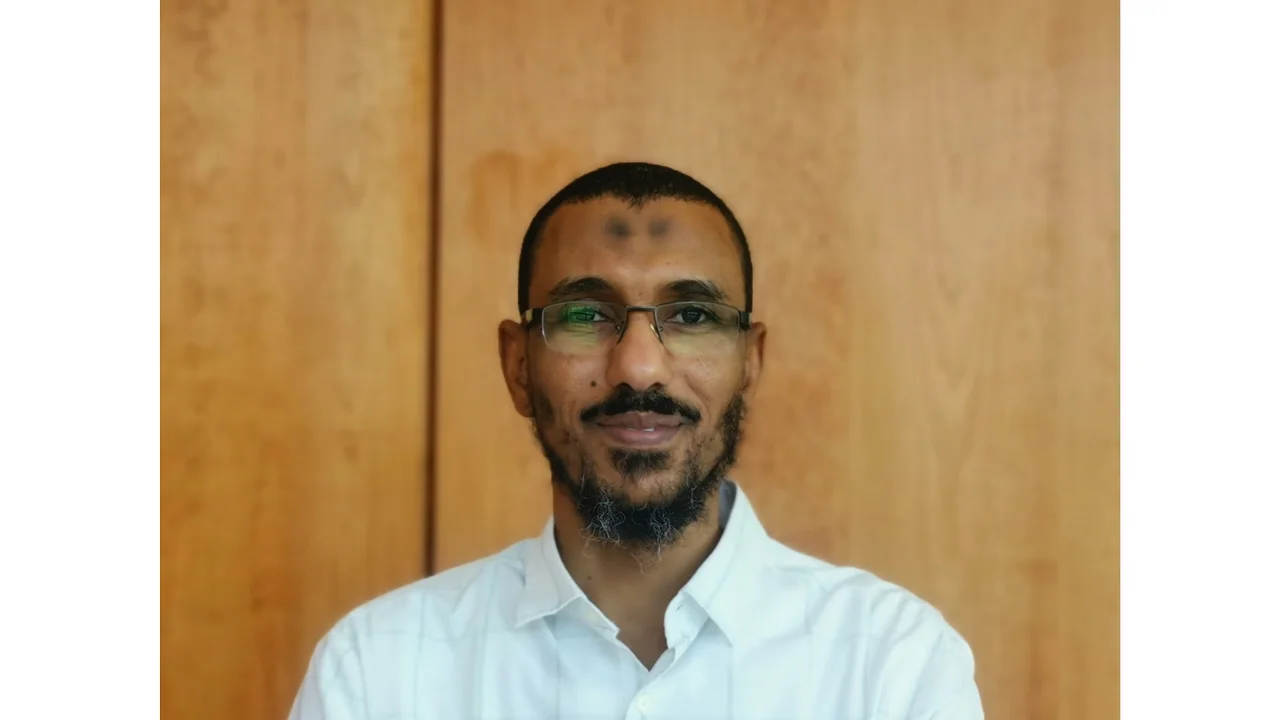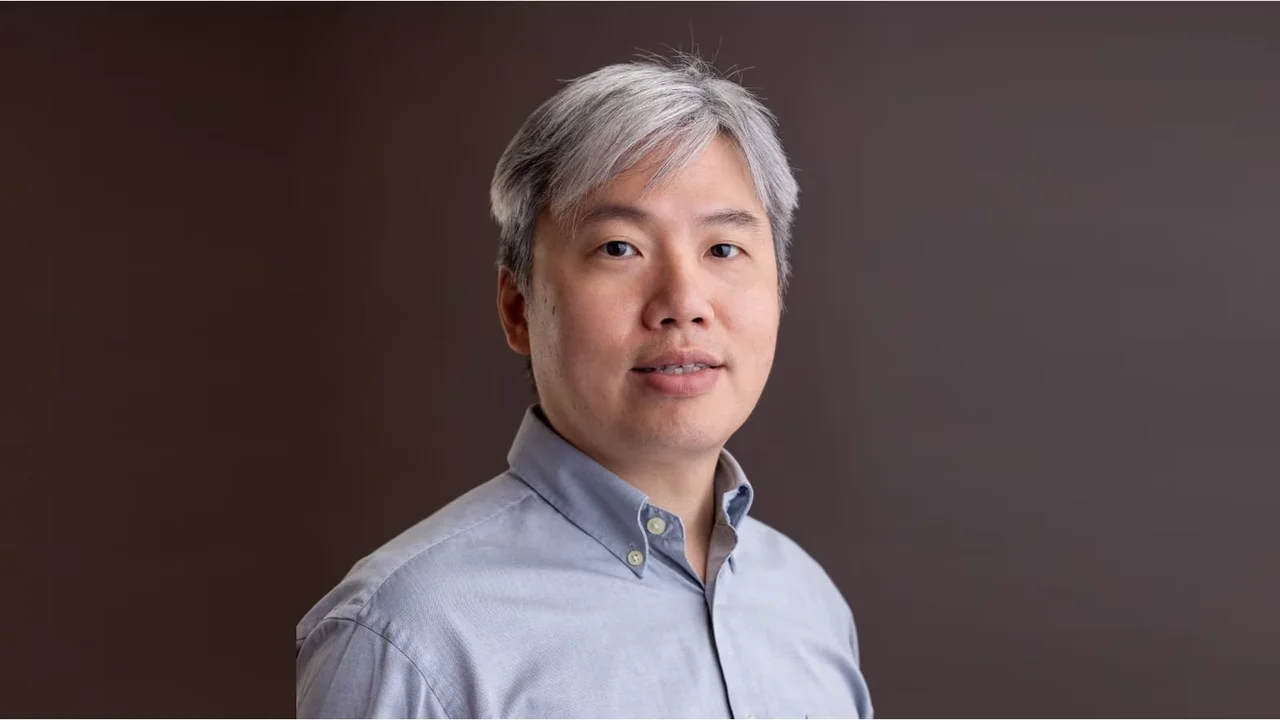Profiles
Research Scientists
Research Interests
Erik von Schwerin's research interests include Deterministic and stochastic differential equations, Computations with uncertainty, Error control and adaptivity, Systematic coarse graining, Stochastic optimal control, Hybrid modeling, and Multiscale methods.
Education
Fouzi Harrou
- Senior Research Scientist, Statistics
Biography
Dr. Harrou received an M.S. degree in Telecommunications and Networking from the University of Paris VI and a Ph.D. degree in Systems Optimization and Security from the University of Technology of Troyes (UTT), France. He was an Assistant Professor at UTT for one year and was an Assistant Professor at the Institute of Automotive and Transport Engineering, Nevers, France, for one year. He was also a Post-Doctoral Research Associate at the Systems Modelling and Dependability Laboratory, UTT, for one year. He is currently a Senior Research Scientist with the Division of Computer, Electrical, and Mathematical Sciences and Engineering at King Abdullah University of Science and Technology. He is a co-author of "Statistical Process Monitoring Using Advanced Data-Driven and Deep Learning Approaches: Theory and Practical Applications" (Elsevier, 2020) and "Road Traffic Modeling and Management: Using Statistical Monitoring and Deep Learning" books. And he is a Senior Member of the Institute of Electrical and Electronics Engineers (IEEE). Harrou is the author of more than 250 refereed journal articles, conference publications, and book chapters. He received two IEEE ECBIOS 2021 Best Paper Awards. Dr. Harrou is featured in Stanford University’s list of the world’s Top 2% scientists for 2020-2025. And he is a Senior Member of the Institute of Electrical and Electronics Engineers (IEEE).
Research Interests
Dr. Harrou’s research interests are in the area of statistical anomaly detection and process monitoring with a particular emphasis on data-driven methods. The algorithms developed in Dr. Harrou’s research are utilized in many applications to improve the operation of various environmental, chemical, and electrical systems.
Education
Biography
Hakim Ghazzai, Senior Member, IEEE, joined the CEMSE Division as a Research Scientist in 2021. Previously, he held several research scholar positions with the Qatar Mobility Innovations Center (QMIC), Qatar, Karlstad University, Sweden, and Stevens Institute of Technology, NJ, USA. Since 2019, he has been on the Editorial Board of the IEEE Communications Letters and the IEEE Open Journal of the Communications Society. Since 2020, he joined the Board of IoT and Sensor Networks (a specialty section of Frontiers in Communications and Networks) as an associate editor. He is a recipient of appreciation for being an exemplary reviewer for IEEE Wireless Communications Letters in 2016 and IEEE Communications Letters in 2017. He is the recipient of the best paper awards at the 2023 IEEE International Conference on Smart Mobility and the 2017 International Conference on Advances in Vehicular Systems, Technologies, and Applications. He is the author and co-author of more than 190 publications. His general research interests include applied artificial intelligence for smart cities, the Internet of things, Intelligent Transportation Systems (ITS), mobile and wireless networks, and Unmanned Aerial Vehicles (UAVs).
Research Interests
Hakim's research focuses on the following areas:
- Green communications
- Smart city applications
- Artificial intelligence
- The Internet-of-Things
- Intelligent transportation systems
Education
Biography
In 2019, Dr. Ruzayqat received his PhD in Mathematics from the University of Tennessee-Knoxville, USA. In 2012, he received a Bachelor degree in Physics and mathematics from Birzeit University, Palestine. Dr. Hamza Ruzayqat joined KAUST in November 2019 as a Post-Doctoral Research Fellow in the group of Computational Probability (COMPPROB). Late in 2022, he was promoted to Research Scientist and now a member in Omar Knio's Research Group.
Research Interests
Dr. Ruzayqat main research is focused on Monte Carlo algorithms, data assimilation and uncertainty quantification. In particular, he is working on particle filters, SMCMC filters, unbiased estimators, inverse problems, parameter estimation and Bayesian inference in discrete/continuous-time, linear/nonlinear, low or high dimensional state-space models. In the past he worked on off-lattice kinetic Monte Carlo methods for atomic simulations.
Education
Biography
Dr. Hatem Ltaief is a Principal Research Scientist in the Computer Electrical and Mathematical Sciences and Engineering Division at KAUST. His research focuses on mixed-precision algorithms, low-rank matrix computations, parallel programming models, and performance optimizations for high-performance computing (HPC) systems equipped with hardware accelerators.
He has contributed to integrating numerical algorithms into major scientific libraries including NVIDIA cuBLAS and Cray LibSci. Collaborating with domain scientists across diverse fields such as ground-based astronomy, geospatial statistics, computational chemistry, bioinformatics, and geophysics, Dr. Ltaief helps their scientific applications meet the exascale computing challenges.
Dr. Ltaief has co-authored all four of KAUST Gordon Bell finalist papers since 2022. In November 2024, he received the prestigious ACM Gordon Bell Prize (shared) in climate modeling for his contributions to developing an exascale climate emulator. This groundbreaking work addresses the computational and storage demands of high-resolution Earth System Model simulations and was achieved in collaboration with a distinguished team of experts.
He earned his engineering degree from Polytech Lyon at the University of Claude Bernard Lyon I in 2003, followed by an M.Sc. in applied mathematics in 2004 and a Ph.D. in computer science from the University of Houston in 2008. Before joining KAUST, Dr. Ltaief served as a research scientist at the Innovative Computing Laboratory in Knoxville Tennessee.
Dr. Ltaief has received multiple accolades including the Best Paper Award at the ACM PASC conference in 2018 and the Gauss Award for Best Paper at the ISC Conference in 2020. He currently serves as co-Editor-in-Chief of the ACM Transactions on Mathematical Software and as an Associate Editor-in-Chief of the Elsevier Parallel Computing Journal.
Research Interests
Dr. Hatem Ltaief's research focuses on mixed-precision algorithms, parallel numerical algorithms, parallel programming models, and performance optimizations for manycore architectures and high-performance computing.
Education
Biography
Haziq Jamil is a Research Specialist at the KAUST, currently on leave from his position as Assistant Professor in Statistics at Universiti Brunei Darussalam (UBD). He obtained his Ph.D. and M.S. in Statistics from the London School of Economics and Political Science (LSE), and his B.S. from Warwick University. At KAUST, he works with Prof. Håvard Rue in the BAYESCOMP group, tackling the computational challenges of Bayesian inference for modern psychometric applications of latent variable modelling.
Research Interests
Haziq's research focuses on statistical theory, methods and computation, with a special inclination towards social science applications. He is passionate about bringing data and technology to the forefront of our daily interaction with the world. Using the R programming language, he builds statistical models for data analysis in order to gain insights, make predictions, and aid decision-making. He is frequently engaged in cross-disciplinary research collaborations and statistical consultations.
Education
Islam Ashry
- Senior Research Scientist, Photonics Laboratory
Biography
Islam Ashry received the B.S. and M.S. degrees from the University of Alexandria, Alexandria, Egypt, in 2003 and 2007, respectively, and the Ph.D. degree from Virginia Polytechnic Institute and State University (Virginia Tech), Blacksburg, VA, USA, in 2012. He is currently a Senior Research Scientist with the Photonics Laboratory, King Abdullah University of Science and Technology, Thuwal, Saudi Arabia. His research interests include optical sensors, fiber-optic sensors, optical communication, machine learning. He is a Senior Member of the National Academy if Inventors (NAI), a Senior Member of IEEE, a Senior Member of IEEE Photonics Society, and a member of SPIE.
Research Interests
Optical sensors; Fiber-optic sensors; Optical communication; Machine learning
Education
Education
Biography
Jongho Park is a Research Scientist in the Applied Mathematics and Computational Sciences (AMCS) Program within the Computer, Electrical and Mathematical Sciences and Engineering (CEMSE) Division at King Abdullah University of Science and Technology (KAUST), Saudi Arabia, where he works under the mentorship of Prof. Jinchao Xu. He received his B.S. degree in Mathematical Sciences and Computer Science in 2013, and his M.S. and Ph.D. degrees in Mathematical Sciences in 2015 and 2019, respectively, all from the Korea Advanced Institute of Science and Technology (KAIST), under the supervision of Prof. Chang-Ock Lee. From 2019 to 2020, he was a postdoctoral researcher in the Department of Mathematical Sciences at KAIST, mentored by Prof. Chang-Ock Lee. He then served as a Research Assistant Professor at the Natural Science Research Institute at KAIST from 2020 to 2023.
He has published more than 30 research articles, including papers in leading journals in computational mathematics. In 2024, he was a plenary speaker at the 28th International Conference on Domain Decomposition Methods, one of the premier international forums in the field. He was also a recipient of the 2020 S-Oil Award of Excellence for Doctoral Dissertation, which recognizes outstanding doctoral dissertations in the natural sciences in Korea.
Research Interests
Dr. Park’s research focuses on the design and analysis of efficient numerical methods for variational problems, with particular emphasis on multilevel methods for nonlinear problems and their applications in mechanics and data science.
Education
Education
Biography
Dr. Laurent Condat received his Ph.D. in Applied Mathematics in 2006 from Grenoble Institute of Technology, France. Following a postdoc at Helmholtz Zentrum München, Germany, he joined the French National Center for Scientific Research (CNRS) in 2008 as a permanent researcher. He worked at GREYC, Caen, before moving to GIPSA-Lab, Grenoble, in 2012. From 2016 to 2019, he served as a member of the French National Committee for Scientific Research. Since 2019, he has been on leave from the CNRS and is currently a Senior Research Scientist at KAUST.
He is a Senior Member of the IEEE and a Senior Area Editor of IEEE Transactions on Signal Processing. His recognitions include a Best Student Paper Award at IEEE ICIP 2005, the Best Ph.D. Award from Grenoble Institute of Technology, and several Meritorious Reviewer Awards. Since 2020, he has been listed among the world’s top 2% most influential scientists by Stanford University.
Research Interests
Dr. Condat’s research focuses on continuous optimization and its applications in machine learning, including deterministic and stochastic algorithms, convex relaxations and applications to machine learning in signal and image processing.
Education
Mikhail Skopenkov
- Research Scientist, Computer Science
Biography
Mikhail Skopenkov has been a research scientist at the CEMSE Division at KAUST since 2022 and an associate professor at HSE University in Moscow since 2014. He earned a master's degree and doctorate from Lomonosov Moscow State University as well as a habilitation from HSE University. He has published 30 research papers, 10 pedagogical ones, and 4 books.
Research Interests
Mikhail's research focuses on the border between discrete and continuous mathematics, including geometry and mathematical physics.
Education
Biography
Mohamed Farhat is currently a Research Scientist at King Abdullah University of Science and technology (KAUST), Thuwal, Saudi Arabia.
Dr. Mohamed Farhat received his Ph.D. in Optics and Electromagnetism from Aix-Marseille University where he obtained as well his Master degree in Theoretical Physics. His PhD dissertation was titled by “Metamaterials for Harmonic and Biharmonic Cloaking and Superlensing.” He has authored over 100 publications, including 1 edited book, 98 journal papers, 7 book chapters, and 5 international patents, as well as over 90 conference papers, with over 5100 citations, as of November 2023. He has organized several special sessions at the Meta conferences, and is active reviewer for many international journals in Physics including Physical Review Letters and Nature Physics. He has co-edited the book “Transformation Wave Physics: Electromagnetics, Elastodynamics and Thermodynamics” at Pan Stanford Publishing.
Research Interests
His research is in the fields of plasmonics and metamaterials with applications spanning optical and acoustical waves.
Education
Mohamed Elobaid
- Research Scientist, Electrical and Computer Engineering
Biography
Mohamed Elobaid is a Research Scientist at King Abdullah University of Science and Technology (KAUST). Prior to joining KAUST, he was a Postdoctoral researcher with the Italian Institute of Technology in Genoa where he was responsible of a joint research lab with Honda R&D. Elobaid obtained his PhD in Automatic Control (magna cum laude) from Sapienza University of Rome in cotutelle with University of Paris Saclay (2022).
Research Interests
- communication networks.
- AI for healthcare.
- Security and reliability analysis of next generation communication networks.
Education
Biography
NABIL MOHAMMED (Senior Member, IEEE) received the B.Eng. degree (Hons.) in electrical power engineering from Tishreen University, Latakia, Syria, in 2013, the M.Eng. degree (Hons.) in electrical engineering from Universiti Teknologi Malaysia, Johor Bahru, Malaysia, in 2017, and the Ph.D. degree in power electronics from Macquarie University, Sydney, NSW, Australia, in 2022.
During Summer 2019, he was a Visiting Researcher with the Department of Energy Technology, Aalborg University, Aalborg, Denmark. From 2021 to 2024, he was a Post-Doctoral Research Fellow with Monash University, Clayton, Australia. He is currently a Research Scientist with the Computer, Electrical, and Mathematical Sciences and Engineering Division, King Abdullah University of Science and Technology, Thuwal, Saudi Arabia.
Research Interests
NABIL MOHAMMED research interests include power electronics, grid integration of renewable energy resources, microgrids, energy storage and management systems, and modeling, control, and stability of power electronic-based power systems.
Education
Education
Osama Amin
- Senior Research Scientist, Networking Research Lab
Biography
Osama Amin, Ph.D., SMIEEE, is a senior research scientist in the CEMSE Division at KAUST. His research examines next-generation communication networks, optical wireless communications, and bio-compatible communication systems. He studies methods to improve global connectivity, enhance the efficiency of communication technologies, and support emerging approaches for healthcare monitoring.
Amin’s work draws on a broad background in wireless communication, signal processing, and optimization. He received his bachelor’s degree in electrical and electronic engineering from Aswan University in 2000 and his master’s degree in electrical and electronic engineering from Assiut University in 2004. He earned his Ph.D. in electrical and computer engineering from the University of Waterloo in 2010.
He joined the Electrical and Electronics Engineering Department at Assiut University as an assistant professor in 2012 before moving to KAUST. At CEMSE, he continues to advance research in communication systems and signal processing with a particular emphasis on wireless applications and their future directions.
Research Interests
- Optical Wireless Communication
- Next Generation Wireless Networks
- Green Communication
- Bio-compatible Communication and Data Analysis
- Hyperloop Communication Network
Education
Biography
Peter started his academic life at Vienna University of Technology (TU Wien). He obtained his bachelor degree in Media Computer Science in 2003. After that, he worked as a teacher assistant for one year. In 2005, he received his master degree in Computer Graphics and Digital Image Processing. During his preparation for the master degree, he worked part-time as a Computer Science teacher at a School for Social Services.
He was a Research Assistant from 2005 to 2009 at TU Wien. In that period, he was also preparing doing his PhD in Computer Science. He received his doctoral degree in 2009. Before joining KAUST, Peter was a Postdoctoral Fellow at the Vienna University of Technology until 2011.
Research Interests
Peter is interested in Scientific Visualization, particularly in advanced methods of fluid flow visualization, Computer Graphics in general, Augmented and Virtual Reality, as well as large language models (LLMs) and their applications in interactive systems.
Biography
Rafayel Teymurazyan obtained his PhD in Mathematics from the University of Lisbon (Portugal) in 2013. After postdoc and research positions at the Federal University of Ceará (Brazil), the University of Texas at Austin (USA) and the University of Coimbra (Portugal), he joined KAUST in May of 2023. He works on regularity theory for nonlinear PDEs and the mathematical analysis of free boundary problems.
Research Interests
Rafayel Teymurazyan works on nonlinear partial differential equations (PDEs) and free boundary problems. The term free boundary problem (FBP) refers to a PDE to be solved both for an unknown function and for an unknown domain. FBPs arise in range of mathematical models that are used to describe a physical or biological phenomenon (for example, ice melting into water, population dynamics), or an economical or financial occurrence (American options, stock markets).
Education
Ramzi Idoughi
- Research Scientist, Computer Science
Biography
Ricardo has a Chemical Engineering Diploma (5 years degree) and a PhD in Chemical Engineering in the area of Process Systems Engineering. He obtained his Diploma and PhD at the Faculty of Engineering from the University of Porto (FEUP), Portugal, under the supervision of Professor Romualdo Salcedo and Professor Domingos Barbosa.
After completing his PhD studies, Ricardo became a post-doctoral fellow in the Department of Chemical Engineering at the Carnegie Mellon University (CMU), USA, where he worked with Professor Ignacio Grossmann. During his stay at CMU, he collaborated with PPG Industries in several projects. He was an invited researcher in the Glass Process Engineering/Process Control group located in the PPG Glass Business and Discovery Center, where he worked with Dr Yu Jiao.
In 2011, Ricardo was awarded a Marie Curie Fellowship to pursue research on sustainable power systems at the National Laboratory of Energy and Geology in Portugal.
Ricardo joined KAUST in 2014, where he has been involved in problems concerning chemical processes flexibility, optimization of isolated and hybrid energy systems, the motion planning of autonomous underwater vehicles, optimal operation of virtual power plants, optimization under uncertainty, robust optimization, and in a project with the Ministry of Health of Saudi Arabia.
Research Interests
My research interests lie at the intersection of optimization, modeling, uncertainty, and computer science. I am interested in the modeling and optimization of complex problems related to energy systems, chemical engineering, and oil industries. Target applications include integration, planning and scheduling of renewable energy systems, process synthesis, planning and scheduling of chemical engineering systems, and path planning of autonomous under-water vehicles. Development of mathematical programming methodologies, namely combinatorial optimization models, continuous optimization models, deterministic global optimization solution approaches, optimization under uncertainty models, and decomposition algorithms to solve large-scale problems.
Education
Biography
Dr. Sameh Abdulah is an HPC senior research scientist specializing in high-performance computing (HPC), and large-scale data analytics. He is a Senior Research Scientist at the Computer, Electrical and Mathematical Sciences and Engineering Division at KAUST. His work focuses on developing scalable algorithms and efficient software frameworks to address complex computational challenges across diverse scientific and engineering domains, including spatial statistics.
He serves as a key link between three major research groups within the extreme computing research at KAUST: the Hierarchical Computations on Manycore Architectures (HiCMA) group led by Professor David Keyes, the Spatio-Temporal Statistics & Data Science (STSDS) group led by Professor Marc Genton, and the Environmental Statistics (ES) group led by Professor Ying Sun. His primary role is to bridge advanced parallel linear algebra (LA) innovations with high-performance computing (HPC) in the spatial statistics field in the context of climate and weather applications.
Dr. Abdulah was honored with the ACM Gordon Bell Prize for Climate Modelling in November 2024. His team's pioneering work in climate simulation set new benchmarks in computational efficiency and resolution, transforming how climate data is modeled and analyzed. He was also part of the KAUST team nominated for the ACM Gordon Bell Prize in the general track for spatial data modeling/prediction in 2022.
He has significantly contributed to scalable matrix computations, particularly in designing numerical libraries that leverage modern hardware architectures. His expertise includes mixed-precision matrix computations, geostatistical modeling, and prediction. He has also developed cutting-edge methodologies for accelerating data-intensive simulations, enabling transformative weather/climate modeling advancements.
As a passionate advocate for open-source software, Dr. Abdulah is actively involved in collaborative research and software development, sharing tools and libraries that empower researchers globally. His work is driven by a commitment to innovation and interdisciplinary collaboration, harnessing the power of HPC to tackle some of the most pressing challenges in computational science.
Research Interests
Sameh's research includes HPC, large-scale spatial and spatio-temporal statistics, GPU acceleration, and mixed-precision and low-rank algorithms for AI-enabled scientific applications, with a particular focus on climate and environmental modeling. He is a core developer of ExaGeoStat, an open-source exascale geostatistical software framework widely used by the community for large-scale spatial modeling and benchmarking on modern supercomputers.
Adding the HPC capabilities to existing science is a big challenge. Statistics has a huge number of tools and methods that can be more attractive if they scaled up. Dr Abdulah is doing this by working through two different groups to transfer knowledge and experience between two different views of the same problem. In other words, he is moving the traditional statistical tools and methods to the HPC era.
Education
Samer Allouch
- Research Scientist, Omar Knio Research Group
Selma Amara
- Research Scientist, Electrical and Computer Engineering
Biography
Silvio Giancola is a Research Scientist at KAUST, where he leads initiatives at the intersection of computer vision, artificial intelligence, and sports. He co-founded the SoccerNet project, a large-scale benchmark for soccer video understanding now adopted by hundreds of research groups worldwide. His research spans video understanding, 3D perception, and sports analytics, with applications ranging from athlete biomechanics to broadcast automation. Dr. Giancola has published more than 25 peer-reviewed papers, co-authored a book on 3D camera technologies, and organized workshops and challenges at premier conferences such as CVPR. At KAUST, he plays a central role in the newly established FIFA Research Institute, collaborating with FIFA and industry partners to translate cutting-edge AI research into real-world football solutions.
Research Interests
Silvio is mainly interested in Computer Vision, Deep learning, Sports, and Robotics.
Education
Biography
Stefano Zampini earned his PhD in Computational Mathematics from the University of Milan in 2010. His work mainly focused on non-overlapping domain decomposition preconditioners of the dual-primal type (namely, BDDC and FETI-DP type methods) for solving large and sparse linear systems arising from finite elements discretizations and IsoGeometric Analysis. Before joining KAUST in 2014, he worked for the Italian Supercomputing center CINECA, with a specific interest in optimization and parallelization of oil and gas applications, and for the Italian weather forecast agency.
While a theorist by training, he spent his working career in the design and implementation of algorithms for the simulation of physical applications including electromechanical cardiology, computational fluid dynamics, electromagnetics, geophysics, chemistry, isogeometric analysis, fractional diffusion, and PDE constrained optimization. His contributions to the field of Domain Decomposition have been recognized by two plenary talk invitations at the sesquiannual International Conference on Domain Decomposition Methods.
Research Interests
Dr Zampini research interests revolve around the solution of large scale nonlinear-equations such as those arising in the solution of partial differential equations and optimization problems, He is one of the principal developers of the Portable and Extensible Toolkit for Scientific Computing (PETSc), which is a R&D 100 award-winning massively parallel framework for the solution of large scale nonlinear system of equations. His contributions to the open-source software community for Computational Science and Engineering extends to widely adopted frameworks in the US Department of Energy ecosystem for the numerical solution of partial differential equations, namely the MFEM and deal.II libraries for finite-element based simulations. He is also a member of the HPC technical committee of the CFD software package OpenFOAM.
Tarig Ballal Khidir Ahmed
- Research Scientist, Electrical and Computer Engineering
image processing acoustic signal detection Digital signal processing low complexity systems Low sampling Ultra-wideband communication UWB channel impulse response estimation. Acoustic sensing and communications Sonars and radars. Movement detection and tracking using RF and acoustic waves. Respiration detection and tracking. Robust estimation and regularization Experimentation and testing.
Research Interests
- Digital Signal Processing & algorithms.
- Low sampling & low complexity systems.
- Image Processing.
- Ultra-wideband (UWB) sensing and communications.
- UWB channel impulse response estimation.
- Acoustic sensing and communications.
- Sonars and radars.
- Movement detection and tracking using RF and acoustic waves.
- Respiration detection and tracking.
- Robust estimation and regularization.
- Experimentation and testing.
Education
Tien Khee Ng
- Principal Research Scientist, Photonics Laboratory
Biography
Tien Khee Ng (Fellow of IET and InstP) is a principal research scientist and a laboratory-operation-manager of the Photonics Laboratory at King Abdullah University of Science and Technology (KAUST), Saudi Arabia. He co-established the Photonics Laboratory (2009-) and KACST Technology Innovation Center on Solid-State Lighting at KAUST (2013-2021), and currently focuses on molecular-beam-epitaxy-grown group-III-oxides photonics/electronics and quantum-devices. He was a research fellow and a member-of-technical-staff at Nanyang Technological University and Tinggi Technologies (Singapore), respectively, developing group-III-arsenide, -phosphide, -antimonide and - nitride semiconductor nanostructures and optoelectronic devices. He was an associate editor of digital Encyclopedia of Applied Physics (July 2018–June 2023).
Research Interests
Semiconductor photonics, Multistack membrane semiconductor; Quantum photonic integrated circuits; Optoelectronic devices for optical wireless communication
